An Analysis of Uganda’s Opposition Crisis: NUP, Bobi Wine, and the Allegations of Corruption
The landscape of Ugandan opposition politics is facing a profound crisis of credibility. Grave allegations have emerged against the National Unity Platform (NUP) and its president, Bobi Wine, suggesting the party has morphed from a beacon of “people power” into a political enterprise prioritising profit over principle. This in-depth analysis examines the core of the scandal: the claim that NUP party tickets are being sold to the highest bidder, a charge most prominently levelled by the Mayor of Kira, Julius Mutebi, who alleges he was asked for Shs10 million to secure a nomination.
Exploring the subsequent fallout—including the exit of MPs like Honourable Nyeko Derrick and the party’s defence led by officials such as Lewis Rubongoya and Muhammad Muwanga Kivumbi—this piece argues that these are not isolated incidents but symptoms of a deeper ideological bankruptcy. It reveals a party replicating the very patronage and top-down control it once opposed, leading to a devastating erosion of public trust.
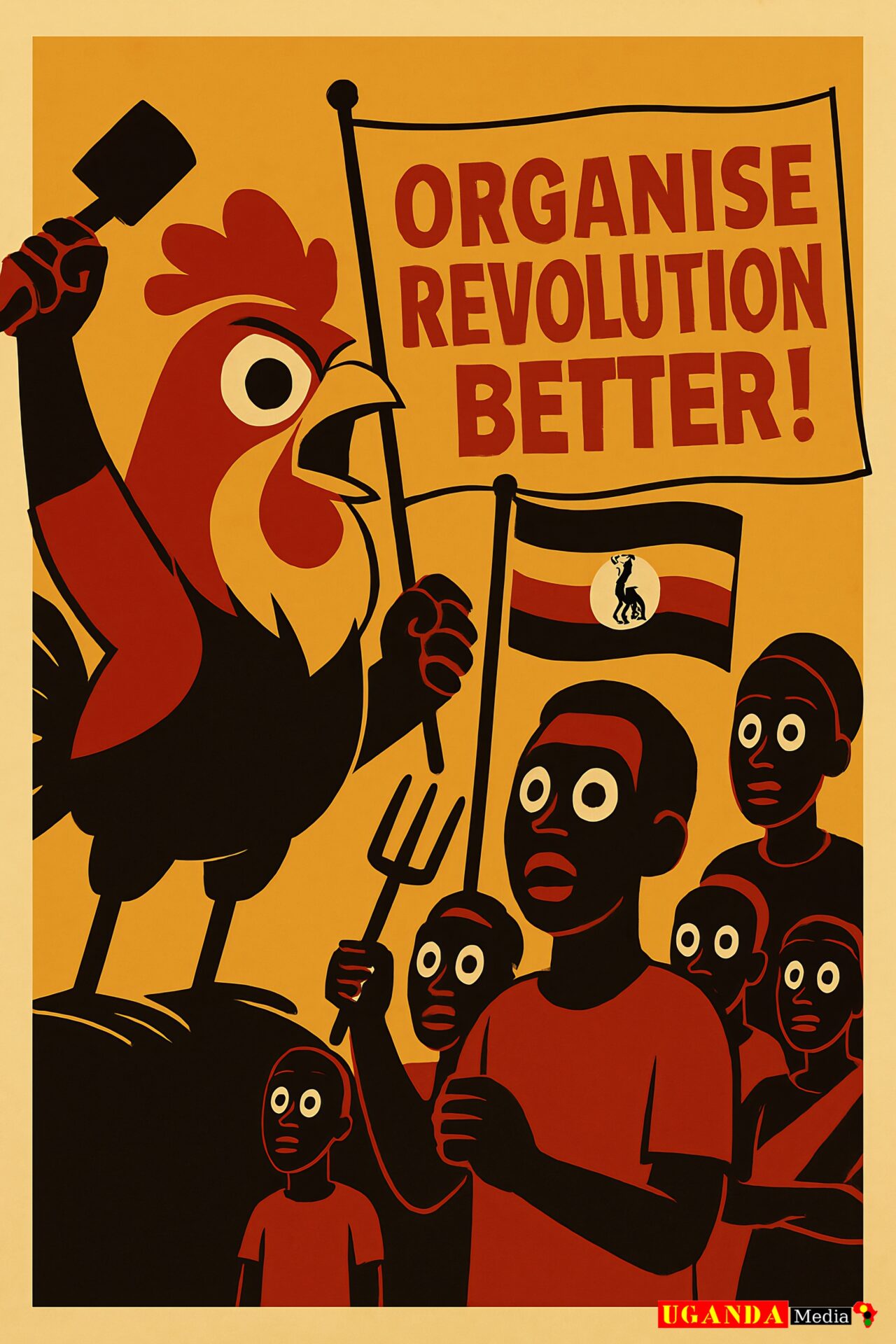
Moving beyond critique, this commentary offers a radical vision for reclaiming Uganda’s future, arguing that genuine change will never come from begging for integrity at the top of any party. Instead, it must be built from the bottom up through community organising, mutual aid, and collective decision-making, creating structures so transparent and accountable that they leave no room for a price tag to be attached to hope.
The 20-Point Examination: The Business of Politics
The Sweet Potato That Grew Rotten: On Betrayal and Political Promise in Uganda
There is an old adage whispered in many Ugandan villages: “The hunter who promises to share the meat equally often carries the heaviest portion home for himself.” This wisdom, passed down through generations, cuts to the heart of a painful truth we are witnessing today. It is the truth of the “bait and switch”—a cruel game where the hope of liberation is dangled before the people, only to be snatched away and sold back to them once their support has been secured.
Let us be clear about the bait. It is powerful and potent. It is the language of “people power,” of “solidarity,” and of a “new Uganda.” It is the promise that the days of patronage, of bribes for services, and of leadership that feasts while the people starve, are finally over. This language is not just political rhetoric; it is a lifeline thrown to a populace drowning in decades of corruption and oppression. It attracts mass support because it speaks to a deep, universal yearning for dignity and self-determination. People invest not just their votes, but their hope, their meagre resources, and often their safety, in this promise of a clean break. They believe they are building a movement, not just crowning a new king.
Now, observe the switch. The central allegation—that the ideals of justice and liberation have been commodified—is where the profound betrayal lies. To commodify something is to strip it of its inherent value and turn it into a mere product for sale. When a party membership card, the very symbol of belonging to a struggle for justice, is allegedly sold to the highest bidder, that struggle is no longer a moral mission. It becomes a business. The promise of representation is no longer a right of the committed but a privilege for the affluent.
This represents a catastrophic breaking of trust. It tells the grassroots supporter in Kamwokya or Kasese that their dedication, their door-to-door mobilisation, and their courage in facing tear gas are worth less than the wallet of a wealthy newcomer. The movement, built on the shoulders of the many, is then hijacked to serve the interests of the few who can pay for access. This is not a simple political misstep; it is a fundamental perversion of the original promise. It is the hunter ensuring his own pot is fullest.
 From a perspective that values radical freedom and mutual aid over hierarchical power, this betrayal was almost inevitable. Why? Because the model itself is flawed. Any structure that concentrates power—the ability to grant or deny candidacy, to control resources, to be the gatekeeper of “the party”—in the hands of a central committee or a few individuals, inherently contains the seeds of this corruption. Power, as we have seen throughout history, seeks to preserve and enrich itself. When you replace one centralised structure with another, you often merely replace the faces at the top, not the corrupting nature of the throne itself.
From a perspective that values radical freedom and mutual aid over hierarchical power, this betrayal was almost inevitable. Why? Because the model itself is flawed. Any structure that concentrates power—the ability to grant or deny candidacy, to control resources, to be the gatekeeper of “the party”—in the hands of a central committee or a few individuals, inherently contains the seeds of this corruption. Power, as we have seen throughout history, seeks to preserve and enrich itself. When you replace one centralised structure with another, you often merely replace the faces at the top, not the corrupting nature of the throne itself.The solution, then, is not to find more honest hunters, but to challenge the very idea that we need a hunter to distribute the meat at all. It is to build forms of organisation that are horizontal, not vertical. It is about communities developing their own capacity for self-governance, putting forward their own accountable delegates whose mandate can be revoked at any time, and building power from the bottom up.
True liberation cannot be bought, sold, or bestowed by a party headquarters. It must be grown organically from the soil of our own communities, through cooperation and direct action. It means remembering that the power to create a just society does not lie in a single leader or party, but in the collective will of the people, organised freely among themselves. The goal is not to take hold of the wheel of the state, but to stop it from running over the people—and to build our own vehicles for the journey ahead, together.
The Well with a Locked Lid: Meritocracy’s Illusion in Ugandan Politics
There is a timeless adage spoken across Uganda: “However long the log remains in the river, it will never become a crocodile.” This wisdom speaks to an inherent, unchangeable nature. We can apply this to the current political system. You can dress a process in the finest garments of fairness—give it a name like “meritocracy,” and create complex formulas like the 60/40 model—but if its fundamental nature is corrupt, it will never produce genuine, legitimate leadership. It remains a log, pretending to be a crocodile.
The proposed 60/40 vetting model, on the surface, appears impeccably rational. It seems to strike a balance, does it not? Sixty per cent reliance on the voice of the grassroots, the very people who know their needs best, combined with forty per cent assessment by a central committee of supposed experts. It presents itself as a marriage of popular will and qualified judgement. It is a seductive narrative, suggesting that the best and brightest, validated by their community, will naturally rise to the top.
However, this carefully constructed image of fairness crumbles into dust the moment the gatekeepers to this process—those who control the coveted 40%—decide to demand payment. This act is not a simple case of corruption; it is the violent wrenching that breaks the entire machine. The model ceases to be a tool for identifying merit and transforms into something far more sinister: a façade for legitimising pre-determined, profitable outcomes.
Think of it like this: the 60% “grassroots consultations” become not a measure of genuine support, but a theatre performance. It is a popularity contest that can be manipulated, a number that can be fudged, or a process entirely ignored if a more lucrative candidate emerges. The will of the people becomes a mere suggestion, easily overruled by the cold, hard calculus of cash in a backroom. The 40% committee assessment is no longer about evaluating a candidate’s integrity or vision; it becomes an auction. The committee members transform from evaluators into salespeople, and the party ticket becomes a commodity on a shelf, its price determined not by its value to the community, but by the depth of the aspirant’s pockets.
This creates a devastatingly cynical outcome. The entire process, with its percentages and consultations, exists to provide a sheen of legitimacy to what is essentially a commercial transaction. It is a ritual performed to convince the public that the outcome was just and earned, when in reality, it was simply purchased. The wealthy individual or the well-connected insider who sec the nomination can now point to the “60/40 model” as proof of their merit, hiding the payment that truly secured their position. They wear the community’s endorsement as a stolen crown.
From a perspective that believes power should be distributed, not concentrated, this myth is particularly dangerous. It reinforces the poisonous idea that leadership is a prize to be won in a game controlled by a few gatekeepers, rather than a temporary responsibility to be granted directly by a community to a trusted delegate. It centralises power in the hands of the committee, making everyone else a supplicant begging for their approval.
The alternative is not a better formula, but an entirely different philosophy of power. It is to believe that communities are not incapable masses waiting for a saviour from the centre, but are perfectly capable of organising their own affairs. It is about building systems where delegates are chosen through open assemblies, where their mandate is directly tied to the will of their constituents, and where they can be recalled instantly if they betray that trust. It is about creating structures that are transparent and horizontal, where there are no hidden gatekeepers to bribe because the power to choose never left the community in the first place.
 True merit is not a score given by a committee. It is a quality recognised daily by one’s neighbours, peers, and comrades. It is earned through consistent action, integrity, and service—not purchased in a shadowy deal. A system that truly valued merit would dissolve the gatekeeping committees altogether and trust the people to know their own interests best. It would understand that a log, however long it floats, can never truly lead the river.
True merit is not a score given by a committee. It is a quality recognised daily by one’s neighbours, peers, and comrades. It is earned through consistent action, integrity, and service—not purchased in a shadowy deal. A system that truly valued merit would dissolve the gatekeeping committees altogether and trust the people to know their own interests best. It would understand that a log, however long it floats, can never truly lead the river.The Chief’s Clean Hands: How Power Outsources Its Dirty Work
There is a piercing adage in Luganda that speaks to this very deceit: “Omukulu tayogera ku nsobi.” – “The chief does not speak of the dirt.” It implies that those at the top maintain their aura of authority by remaining above the fray, never sullying their hands or their reputation with the messy, immoral acts required to maintain their power. They leave that to others. This ancient wisdom captures perfectly the modern political strategy of Weaponised Accessibility.
Let’s dissect this mechanism. At its core, it is a sophisticated system of political fraud designed to create plausible deniability. The national leadership, residing in comfortable offices in Kampala, makes public pronouncements. They declare the nomination process “free and fair,” as the NUP constitution supposedly guarantees. They speak into television cameras about justice, integrity, and equal opportunity for all. This creates a official, sanitised record. They appear clean, principled, and trustworthy.
Meanwhile, on the ground in places like Gulu, Mbale, or Masaka, a different reality unfolds. Party mobilisers, local coordinators, and agents—the foot soldiers of the political machine—allegedly operate on a different set of rules. Whispers turn into demands. Aspirants are told that while the ticket is officially free, “facilitation,” “logistical support,” or outright bribes are required to make the process “smooth.” This is the dirty work of exclusion. It ensures that only those with wealth, or those willing to go into debt, can proceed. Those without means, however passionate or supported by their community, find an invisible, unacknowledged wall blocking their path.
The genius of this system, and its profound cruelty, lies in its insulation of the top from accountability. When a poor aspiring councillor from Kisenyi is asked for a bribe, who can they complain to? If they point the finger at the local mobiliser, that mobiliser can easily be dismissed as a “rogue actor” not following the party’s clear directives. The leadership in Kampala can express “shock” and “disappointment,” and perhaps even make a show of suspending the individual, all while the system itself remains intact. The top layer of leadership is protected by a buffer of expendable middlemen. They reap the benefits of the funds collected while avoiding the moral and political blame. The dirt never sticks to the chief’s robes.
From a perspective that believes power must be transparent and accountable, this is the ultimate betrayal. It represents a centralised power structure that is fundamentally duplicitous. It speaks with a forked tongue: one voice proclaims liberation for the public record, while another, quieter voice perpetuates the same old extortion. It proves that the problem is not just a few “bad apples” but the very design of the barrel. A vertical, hierarchical structure where power flows from the top down will always, inevitably, find ways to protect itself at the expense of those at the bottom.
The alternative to this weaponised accessibility is not better leadership from the top, but the complete dismantling of the gatekeeping model itself. It is about building truly localised, transparent processes where power is not outsourced but is retained by the community.
Imagine a system where candidates are selected not by a remote committee or its agents, but through open village and parish assemblies. Where the community itself debates and chooses its representative based on known character and proven action, not on whispered promises and paid-for endorsements. In such a system, there is no mysterious “mobiliser” to bribe because the decision-making power resides with the people directly. The process is not just free in cost, but free from manipulation by unseen intermediaries.
True political freedom isn’t just the absence of a price tag; it is the presence of genuine, unmediated community control. It is about ensuring that the hands that make the decisions are the same hands that will feel the consequences, making accountability direct and immediate. It is about creating a politics where no chief can hide behind clean hands because the people themselves hold the power.
The Fig Tree with No Fruit: On the Theft of Grassroots Power
A common adage warns us: “Do not look at the basket that carries the offerings, but at the hands that placed them there.” This wisdom urges us to scrutinise the source of things, to question appearances. In the political marketplace of modern Uganda, we are presented with baskets overflowing with so-called “grassroots support.” But we must dare to look at the hands that filled them. All too often, they are not the calloused hands of the farmer or the vendor, but the soft, well-manicured hands of wealth, placing its offerings to purchase influence. This is The Grassroots Lie.
The claim that affluent individuals can buy their way into a political party lays bare a brutal truth: the will of the people, the very essence of “grassroots,” is a commodity that can be counterfeited and manufactured. It is not an organic expression of community trust but a product for sale. Financial muscle can rent a crowd, pay for signature drives, blanket an area with posters, and command airtime on local radio stations. It can create a dazzling, loud, and convincing illusion of popular support where little exists. This spectacle is not democracy; it is political theatre, and the wealthy are both the directors and the starring actors.
Furthermore, this financial power doesn’t just manufacture support; it actively overrules genuine, organic backing. Imagine a dedicated community champion in Nakaseke or Nebbi—a teacher, a farmer, a organiser—who has spent years earning respect through tangible action: organising cooperatives, challenging land grabs, and standing in solidarity with their neighbours. Their support is deep, earned, and real, but it is not loud or flashy. It resides in the quiet respect of their community. When a wealthy outsider arrives with a war chest, that genuine, earned support is rendered invisible and deemed irrelevant by the party’s calculus. The logic of money overrules the logic of the people. The community’s chosen champion is sidelined because they lack the capital to prove their “worthiness” to a centralised party machine.
 This creates a devastating betrayal. It tells ordinary Ugandans that their trust, their relationships, and their collective voice are worthless in the face of a banknote. It reinforces a vicious cycle where only the wealthy or the indebted can access the political arena, ensuring that the system will never truly serve the interests of the poor. The party begins to resemble the very system it claims to oppose—a patronage network where loyalty is bought and sold, not earned through shared struggle and principle.
This creates a devastating betrayal. It tells ordinary Ugandans that their trust, their relationships, and their collective voice are worthless in the face of a banknote. It reinforces a vicious cycle where only the wealthy or the indebted can access the political arena, ensuring that the system will never truly serve the interests of the poor. The party begins to resemble the very system it claims to oppose—a patronage network where loyalty is bought and sold, not earned through shared struggle and principle.From a perspective that believes power should rise from the soil of the community, not rain down from the balconies of Kampala, this lie is the original sin of centralised politics. It proves that any structure that concentrates the power to choose candidates in a distant committee—a committee that can be lobbied, influenced, and bought—will inevitably be corrupted. It seizes the people’s right to self-determination and sells it back to the highest bidder.
The alternative is not to beg the gatekeepers to be more fair, but to tear down the gates entirely. It is to build a politics that is rooted in place, not in finance. This means:
Community Assemblies: Where the people of a village, a parish, or a ward gather in open meeting to discuss, debate, and directly select their own delegates based on known character and proven action.
Imperative Mandates: Where the delegate is sent to Parliament or Council with specific instructions from their community and can be instantly recalled if they fail to represent those interests or if they succumb to corruption.
Transparency in the Sunlight: Where the selection process happens in the open, witnessed by all, leaving no dark corners for deals to be made.
True grassroots power is like a sturdy, fruit-bearing fig tree—it grows slowly from below, nurtured by its community, and feeds those who cultivated it. The manufactured support of the affluent is like a plastic tree; it may look convincing from a distance, but it provides no shade and bears no fruit. We must choose whether we want a landscape of plastic imitations or a forest of strong, organic, and nourishing communities who control their own destiny. The future belongs not to the highest bidder, but to the deepest roots.
The Hyena Judges the Case of the Missing Goat: On the Illusion of Internal Justice
A timeless adage from the African continent offers a piercing insight into this very problem: “When the hyena is appointed the judge, the goat must always be found guilty.” This proverb cuts to the heart of the farce that is The Centralisation of Power. It reveals the utter absurdity and inherent injustice of a system where an accused party is allowed to control the very process designed to investigate its own crimes.
The act of a party leadership appointing an “internal committee”—even one led by a high-ranking official like a Deputy President—to investigate allegations of corruption within its own ranks is not a good-faith effort towards accountability. It is a classic, well-worn tactic of centralised control. It is a performance staged for the public, designed to create the illusion of action while meticulously ensuring that no real scrutiny occurs and no fundamental power is threatened.
This mechanism functions by keeping control within a closed loop. Think of it as a family matter, where an abusive father appoints his eldest son to investigate claims of violence. The outcome is pre-ordained. The investigation is confined within the walls of the same structure that committed the alleged wrongdoing. Evidence can be hidden, witnesses can be intimidated, and terms of reference can be narrowly defined to exclude the most damning questions. The committee’s primary loyalty will inevitably be to the preservation of the party—and, by extension, the leadership that appointed them—not to the abstract and disruptive concept of justice.
The ultimate goal is to avoid independent, transparent scrutiny. True accountability is like sunlight; it disinfects and reveals everything. Centralised power thrives in the shadows of closed doors and whispered deals. An independent investigation, led by respected community elders, civil society figures, and grassroots representatives from outside the party structure, would bring that dreaded sunlight. It could follow the money, question power directly, and publish findings without fear or favour.
But an internal committee is shielded from this. It can produce a report that whitewashes the leadership, blames a few “rogue elements” at the bottom, and recommends minor, superficial changes that leave the centralised power structure entirely intact. The hyena, in this case, not only gets away with the crime but also gets to write the official history of the event, clearing its name and reinforcing its authority.
From a perspective that believes justice must be impartial and power must be distributed, this closed-loop investigation is the ultimate proof of a bankrupt system. It demonstrates that a structure built around a centralised command cannot and will ever be capable of holding itself accountable. The concentration of power is itself the disease, and it is absurd to expect it to produce a cure.
The alternative is not a better internal committee, but a complete rejection of the model that requires one. It is to build a politics where accountability is direct, immediate, and built into the very fabric of organisation. This means:
Power at the Source: Decisions, including the selection of representatives, are made in open community assemblies, not in smoke-filled backrooms in Kampala.
Recallable Delegates: Any representative found to be corrupt or failing their community can be instantly recalled and replaced by that community, without needing permission from a central committee.
Transparency as a Default: All party finances and processes are open books, audited by independent community-based organisations, not internal lackeys.
Justice by the People: Allegations of corruption are investigated by rotating committees drawn from the wider membership and the community, ensuring no one has a permanent stake in protecting the powerful.
True accountability cannot be gifted from the top down. It must be demanded and practised from the bottom up. It means recognising that a hyena will never deliver justice for a goat. The only solution is to build a world where the goats have their own courts, based on mutual respect and common interest, and where the hyenas are stripped of their judicial robes for good.
The Empty Granary: When Political Ambition Consumes Its Own Purpose
There is a profound adage that warns of short-sighted gain: “Do not sell the granary to buy maize.” This speaks to the folly of sacrificing your long-term security for a temporary, immediate need. In the political realm, the granary is a party’s core vision—its reason for being, its shared dream of a better society. The maize is the fleeting taste of power represented by a parliamentary seat. The accusation of “ideological bankruptcy” is the shocking realisation that the granary has been sold, leaving nothing but an empty shell where purpose once resided.
When a movement is born from genuine struggle, its power comes from a compelling vision of a different future. It articulates not just what it is against—be it dictatorship, corruption, or poverty—but what it is for. It is for community control over resources, for radical transparency, for justice that is accessible to all, not just the wealthy. This vision is its soul. It is what inspires people to sacrifice, to mobilise, and to believe.
However, the relentless pursuit of electoral victory creates a dangerous shift. The primary purpose subtly changes from building a new society to simply winning seats within the old one. The vision, the “ideology,” is the first casualty of this shift. It becomes seen as impractical, as a hindrance to the broad coalitions and compromising deals needed to win. It is packed away, deemed too controversial, too radical for the mainstream. What remains is a hollow shell—a brand, a logo, a machine whose sole function is to accumulate political positions. It becomes a business venture, no different from a corporation selling soap, except its product is promise and its currency is votes.
This creates a devastating vacuum. Without a clear, unifying vision of a better society, what holds the organisation together? The answer becomes not shared principle, but shared ambition. Not a common dream, but a common craving for the spoils of power—jobs, contracts, influence, and status. The party ceases to be a vehicle for liberation and transforms into a ladder for individual advancement. It begins to mimic the very system it sought to replace, operating on the same logic of patronage and self-enrichment. It is a granary that has been dismantled, its bricks sold off one by one until nothing of value remains.
From a perspective that believes politics must be about substance, not spectacle, this bankruptcy is the root of all other failures. It explains why corruption takes hold, why principles are abandoned, and why grassroots champions are sidelined. If the ultimate goal is merely to occupy seats, then any means to that end—selling tickets, accepting corrupt money, forming alliances with opportunists—can be justified. The end goal of a truly transformed society is replaced by the much smaller, emptier goal of just getting into the building.
The alternative to this hollowing out is not to find a new, better ideology to be dictated from the top. It is to recognise that a living vision cannot be centralised or owned by a party leadership. It must be cultivated and held by the people themselves. This means:
Purpose Over Position: Valuing the ongoing work of building community power—through cooperatives, assemblies, and mutual aid networks—as more important than winning an election. The goal is to change society, not just to govern the existing, broken one.
A Vision from Below: Allowing the shared vision for a better society to emerge organically from the bottom up, through continuous discussion and action within communities, rather than being a manifesto written by a few and handed down.
Integrity in Means and Ends: Understanding that the methods used to gain power will inevitably shape what you do with it. You cannot build a just society through unjust means like corruption and exclusion. The journey and the destination are one and the same.
 A movement without a vision is like a body without a spirit—it may move, but it has no purpose beyond its own hunger. We must refuse to sell our granary for a temporary meal. We must insist that the true goal is not to simply win the game, but to change the rules entirely; to build a politics where the power to define the future rests not with a party machine, but in the hands of the people, organised freely on their own terms.
A movement without a vision is like a body without a spirit—it may move, but it has no purpose beyond its own hunger. We must refuse to sell our granary for a temporary meal. We must insist that the true goal is not to simply win the game, but to change the rules entirely; to build a politics where the power to define the future rests not with a party machine, but in the hands of the people, organised freely on their own terms.The Leash of the Donor: How Fundraising Enslaves a Movement’s Promise
A sharp adage from the region captures the peril of such dependence: “He who pays the piper calls the tune.” This simple proverb unveils an eternal truth about power and influence. You cannot accept the gold of a benefactor without also, eventually, accepting their conditions. This is the insidious nature of The Cycle of Dependence. A political party launching a massive fundraising campaign for elections may see it as a practical necessity in the current game, but it fails to see it is swallowing a hook baited with gold, a hook that will pull it irrevocably away from its moorings in the people.
Let’s be clear: elections under the current system are astronomically expensive. Posters, vehicles, rallies, media campaigns—the costs are staggering. To compete, a party feels it has no choice but to seek large donations. This is the trap. In doing so, it creates a dependency on wealthy individuals, business interests, and corporate entities. These are not philanthropists; they are investors. And like any investor, they expect a return on their capital.
This dependency is not a passive reality; it actively and inevitably shapes policy and priorities. The needs of the poor—for affordable medicine, for land rights, for clean water, for fair wages—are not profitable. They do not offer a financial return. Conversely, the interests of wealthy benefactors—tax breaks, lucrative contracts, relaxed regulations, access to natural resources, and favourable legislation—are immensely profitable.
The party’s leadership, now beholden to these donors, finds itself caught in a vicious cycle. To win the next election, it needs more money. To get more money, it must prove to its donors that their interests are safe. This leads to a quiet shelving of the radical, people-centred policies that might threaten wealth and power. The party’s platform slowly morphs, moving away from challenging the economic status quo to merely managing it with a slightly friendlier face. The piper is no longer playing the songs of liberation for the people in the slums and villages; he is playing a soothing melody for the elites in boardrooms.
From a perspective that believes a movement’s strength must come from its people, not its patrons, this cycle is a form of political suicide. It severs the party’s lifeline to its base. It transforms a vehicle for popular emancipation into a consultancy firm for the powerful. The party begins to see the people not as the source of its power, but as a demographic to be managed, a vote bloc to be delivered for their backers.
The alternative to this humiliating dependence is not to find purer donors, but to fundamentally reject the logic of top-down, capital-intensive politics. It is to build a politics that draws its strength from a different source entirely: the organised people themselves. This means:
People-Powered Funding: Relying on small, collective contributions from the masses—the kameeza (small table) model of fundraising rooted in community solidarity, where many hands contributing little create a lot. This ensures accountability is to the many, not the few.
A Politics of Presence, Not Advertising: Shifting the focus from expensive radio and television ads to the labour-intensive, but cost-free, work of grassroots organising: door-to-door conversations, community assemblies, and local mobilisation. This builds real, lasting power instead of purchasing a temporary image.
Policy Immunity from Donors: Ensuring that the movement’s core principles are non-negotiable and protected from the influence of wealth by being embedded in and controlled by grassroots assemblies, not by a central committee that can be lobbied.
A movement that feeds on the crumbs of the wealthy will never be able to bite the hand that feeds it. True political power cannot be bought; it must be built from below. It is about recognising that the only dependable resource is the people themselves—their time, their energy, their skills, and their unwavering commitment to a shared vision. The goal must be to create a politics so deeply rooted in the community that it doesn’t need the piper’s gold to play its own, authentic tune.
The Thunder That Brings No Rain: On the Empty Theatre of Political Outrage
A common adage laments a familiar disappointment: “Much thunder, little rain.” It describes the empty spectacle of a fierce storm that rolls across the sky with great noise and drama, yet leaves the parched earth beneath it just as dry as before. This is the essence of The Performance of Outrage. It is the political theatre where leaders unleash a torrent of angry words against corruption and fraud, creating the sound and fury of a storm, while doing nothing to actually water the roots of justice.
When allegations of selling party tickets emerge, the leadership’s response is often a public display of indignation. They label the demands “fraudulent,” they express “shock,” and they may even promise to investigate. But these statements, in isolation, are utterly meaningless. They are a performance designed to manage public perception, to create the illusion of accountability and decisive action. It is a cost-free pantomime that requires no real change, no confrontation with powerful interests within the party, and no transfer of power away from the structures that enabled the fraud in the first place.
The critical failure is that this outrage is never followed by radical, transparent action. To be radical is to go to the root of the problem. The root is not the individual “rogue” mobiliser who got caught; it is the centralised system itself that creates these opportunities. It is the power imbalance that places a distant committee in control of a community’s choice of representative. It is the lack of transparent, community-led vetting processes. Merely firing or suspending a few low-level operatives while leaving this corrupting structure intact is like plucking a few weeds while leaving the root system perfectly undisturbed. They will simply grow back, stronger and more careful next time.
This performance is a classic tactic of preserving power. By loudly condemning the symptom (the individual act of corruption), the leadership can present itself as virtuous and in control, all while protecting the disease (the system that generates corruption). They get to appear as the solution while being the guardians of the problem. It is the ultimate act of political deception.
From a perspective that believes integrity must be practised, not just preached, this theatrical outrage is a profound insult to the intelligence of the people. It treats them as an audience to be manipulated with words, rather than as participants to be engaged in action. It reveals a leadership that is more concerned with its own image than with genuine justice.
The alternative to this empty performance is not better statements from the top, but the dismantling of the stage itself. It is to replace the need for centralised outrage with localised, automatic accountability. This means:
Transparency as a Tool: Making all party financial flows and candidate selection processes permanently visible and accessible to every member, leaving no dark corners for deals to be made.
Community-Led Justice: Shifting the power to investigate and adjudicate such allegations away from internal committees and to the affected communities themselves. If the people of a constituency believe their process was corrupted, their assembly should have the power to investigate and nullify the result.
Prevention Over Punishment: Building systems that are designed to prevent fraud from happening in the first place, rather than relying on a leadership to punish it after the fact. This means open assemblies for candidate selection, not closed-door committee interviews.
True leaders do not just condemn the fire; they dismantle the arsonist’s toolkit. A movement that is serious about justice would channel its energy not into loud speeches, but into the quiet, radical work of building transparent, community-controlled systems that leave no room for such corruption to take root. The measure of a party’s integrity is not the volume of its outrage, but the depth of its action. We must learn to distrust the thunder and look instead for the real, nourishing rain of tangible change.
The Big Tree That Shades the Saplings: On the Danger of One-Man Politics
A profound adage observes a common ecological and political reality: “When a tree becomes too big, it prevents others from growing beneath it.” This speaks to the dominance of a single entity that, while perhaps providing temporary shelter, ultimately stifles all other life by monopolising sunlight and soil. This is the peril of The Cult of Personality. When a specific, devastating allegation lands at the feet of the party president himself, it reveals a fatal weakness in the entire political organism: it has become a single, giant tree with deep roots but no forest around it.
A movement built around the magnetic appeal of one individual—their story, their charisma, their suffering—makes a dangerous bargain. It gains a powerful symbol in the short term but sacrifices long-term resilience. This structure is vertical and fragile. Everything—every success, every policy, and crucially, every failure and allegation—flows directly to and from that one person. The party’s fate becomes synonymous with the leader’s reputation. This is why an allegation against the president is so devastating; it isn’t an attack on a single member, it is an attack on the heart of the entire operation. If that one tree falls, the entire political ecosystem is left exposed and barren, with nothing else mature enough to replace it.
 This verticality is the opposite of strength. It is a profound fragility. It means the movement’s health is dependent on the infallibility of one human being—a impossible standard. It discourages critical thought and internal debate, as loyalty to the leader is often mistaken for loyalty to the cause. It creates a culture where sycophants rise and independent thinkers are sidelined, for they are considered a threat to the centralised unity of the figurehead.
This verticality is the opposite of strength. It is a profound fragility. It means the movement’s health is dependent on the infallibility of one human being—a impossible standard. It discourages critical thought and internal debate, as loyalty to the leader is often mistaken for loyalty to the cause. It creates a culture where sycophants rise and independent thinkers are sidelined, for they are considered a threat to the centralised unity of the figurehead.Furthermore, this model concentrates all failures and successes onto one individual. When things go well, the leader is glorified, erasing the collective labour of thousands of organisers and supporters. When things go wrong, as with allegations of corruption, the leader becomes the sole target, allowing the wider system and its complicit structures to evade scrutiny. The conversation becomes about whether the leader is corrupt, rather than about whether the system they preside over is designed to facilitate corruption.
From a perspective that believes true power is collective and distributed, this cult is a dangerous illusion. It replicates the very model of authoritarian rule it claims to oppose, merely swapping one big man for another. It teaches people to wait for a saviour rather than to recognise their own collective power.
The alternative to this fragile, personality-driven politics is not to find a better leader, but to cultivate the entire forest. It is to build a politics that is horizontal and resilient—a network, not a ladder. This means:
Distributed Leadership: fostering a culture where countless leaders emerge from every village, parish, and workplace, each empowered to act and make decisions based on shared principles, not commands from above.
Idea-Centred Organising: Ensuring the movement is held together by a common commitment to a vision and a set of practices—like transparency, accountability, and mutual aid—rather than by loyalty to a single individual.
Resilience Through Redundancy: Building a movement where the failure or disgrace of any one person, no matter how prominent, cannot destroy the whole. The work continues because it is owned by the people, not leased from a leader.
A forest is resilient because it does not depend on a single tree. When one falls, the others remain. The goal must be to grow a political culture so thick and so diverse that no single personality can dominate it; a culture where the people themselves are the leaders, and their shared vision provides the only shade they need. We must move from the politics of the big tree to the politics of the deep, interconnected forest.
The Termite in the Roof: How Suspicion Eats Away at the Foundations of Hope
A wise adage offers a stark warning about gradual decay: “However small the termite, it will eventually bring down the roof.” This speaks to the insidious power of persistent, small-scale destruction that goes unchecked. It is a perfect metaphor for The Erosion of Trust. Each allegation of corruption, each whispered story of a bought nomination, each confirmed case of hypocrisy acts like a termite. Individually, each one may seem small—a mere rumour, an unproven claim. But collectively, they chew relentlessly at the very beams and pillars that hold up the entire opposition project: its credibility, its moral authority, and the people’s faith that change is possible.
Trust is not a luxury in politics; it is the foundation. It is the currency that allows a movement to ask for sacrifice, for patience, and for belief. For years, the public’s trust has been systematically broken by the ruling establishment, which operates on a system of blatant patronage. The opposition’s primary offering was a restoration of that trust—a promise of something different, something principled. Therefore, every new allegation, whether ultimately proven in a court of law or not, is catastrophic. It signals to the weary public that perhaps the new group is not so different from the old one. The language may change, the colour may change, but the hunger for power and the willingness to use corrupt means to get it appears hauntingly familiar.
This erosion is not a passive process; it has an active beneficiary: the status quo. A disillusioned public is the greatest asset of any corrupt regime. When people believe that all political options are corrupt, they disengage. They retreat into private life, focusing on sheer survival. This mass disillusionment—this feeling that “all politicians are the same”—is a political weapon that protects the powerful. It guarantees that the system will never face a united, organised, and demanding citizenry. The termites of suspicion, chewing away at the opposition’s roof, ultimately ensure that the old, rotten house remains the only shelter people believe is available, however leaky and oppressive it may be.
From a perspective that believes power must be built on genuine solidarity and transparency, this erosion is a self-inflicted wound. It is the direct result of building a political project that mimics the centralised, top-down model of the old order. When power is concentrated, decisions are made in darkness, and accountability is a performance, you inevitably create the perfect conditions for termites to thrive. The only way to stop the erosion is to change the very architecture of power itself.
The alternative is not to better manage the rumours, but to build a politics that is trust-less by design. This does not mean a politics without trust between people, but a politics that does not require the public to blindly trust a distant leadership. This means:
Radical Transparency: Making all processes—especially financial flows and candidate selection—open and accessible to all, so that trust is built on verifiable fact, not on promises.
Horizontal Accountability: Creating systems where leaders are directly accountable to their local communities, who have the immediate power to recall them, rather than to a party headquarters that might protect them.
Action Over Rhetoric: Focusing on building visible, tangible projects of mutual aid and community self-governance that prove the movement’s values through action, not just words. Let people see the change in their daily lives, not just hear about it at rallies.
A roof cannot be saved by swatting at individual termites; the entire structure must be treated and made resistant. Similarly, trust cannot be restored by press releases and internal committees; it must be rebuilt from the ground up through tangible, visible integrity. The goal must be to create a political practice so deeply embedded in community control and transparency that allegations of corruption find no soil in which to grow. We must build a house for politics where the walls are made of glass and the doors are always open, leaving no dark, damp corners for the termites of distrust to ever thrive again.
The Splintering Fist: How Flight Fragments the Power of the People
A deeply insightful adage warns of the consequences of fractured unity: “One stick alone is easily broken; a bundle of sticks is strong.” This simple truth has guided communities for generations, teaching that collective strength is our greatest defence against oppression. The defection of the Mayor of Kira to another party is not a simple political calculation; it is a desperate symptom of a deeper disease within the body politic. It is the act of a single stick, feeling itself unsupported and on the verge of breaking, leaving the bundle in search of safer ground. This “Alternative of Exit” is a devastating blow that fragments opposition strength and plays directly into the hands of the divisive status quo.
When a structure is healthy, it possesses robust internal mechanisms for redress. It has ways for members to voice grievances, challenge decisions, and hold power to account from within. A functional system would have had channels for the Mayor to be heard, for his allegations to be investigated transparently by his peers, and for justice to be served. The fact that his only perceived option was to leave is a damning indictment. It proves that the party structure is closed, rigid, and unresponsive—that it values loyalty to the centre over justice for its members. The mechanisms for redress are not just failing; they are non-existent, replaced by a command structure that brooks no dissent.
When these mechanisms fail, people inevitably vote with their feet. This is a rational response to a toxic environment. But in the political arena, this individual solution creates a collective problem. Each defection, each new splinter group, each formation of a “People’s Front for Freedom” fragments the energy and resources of those who desire change. It scatters the sticks that were once bundled together. Opposition strength is divided into ever-smaller, weaker factions that spend more time competing with each other for legitimacy and resources than they do confronting the real power they ostensibly oppose.
This fragmentation is the oldest trick in the book for maintaining an oppressive status quo. A divided opposition is a gift to any ruling power. It allows them to play factions against each other, to claim there is no viable alternative, and to present themselves as the only source of stability. The strategy of “divide and rule” does not need to be actively imposed from the top when the opposition is so proficient at dividing itself from within.
From a perspective that believes power must be built on solidarity and mutual aid, the “exit” strategy is a tragic admission of failure. It accepts the flawed, hierarchical rules of the game rather than challenging the game itself. It seeks a better master within the same corrupt system, rather than seeking to abolish the master-servant relationship entirely.
The alternative to exit is not silent loyalty, but what we might call the power of voice and reclaim. This means building movements where the very idea of “exit” is made obsolete because power is never ceded in the first place. This requires:
Unbreakable Bundles: Creating organisational structures that are truly democratic and horizontal, where power is distributed locally. This makes the structure resilient and eliminates the single point of failure a vertical leader represents.
Embedded Recall: Empowering local communities and grassroots members to instantly recall their delegates or representatives who fail them, providing a powerful internal corrective mechanism that makes defection unnecessary.
Solidarity, Not Sovereignty: Fostering a culture where the goal is not to build a new ruling party, but to create a powerful network of communities, trade unions, and associations that can act in concert, applying pressure from multiple angles without requiring a single, monolithic leadership.
The goal is not to create a bigger, more unified party that might one day seize the throne. The goal is to create an unbreakable, multi-stranded bundle of communities that is so strong and so interconnected that the concept of “exit” becomes meaningless. Why would you leave a structure you ultimately control? We must build a politics where the sticks are so tightly bound by mutual interest and direct accountability that they cannot be broken, and where no individual ever feels they have to walk away to find justice.
The Market Stall of Power: When Democracy Becomes a Product for Sale
There is a piercing adage that reveals a universal truth about power and commerce: “When money speaks, the truth keeps silent.” This proverb captures the corrosive effect of wealth on integrity. The phrases “business vote” and “pay-to-play” that we now hear are not merely colourful metaphors or cynical jokes. They are precise, literal descriptions of a terrifying reality: the transformation of our democracy into a marketplace. This is the final stage of a corrosive process—The Language of Commerce—where the sacred right to representation is stripped of its moral value and packaged as a product for sale to the highest bidder.
Let us be blunt about what this means. A “business vote” is not about the votes of business owners; it is about treating the vote itself as a business. It describes a transaction. The product being sold is political influence—the power to shape law, to access public resources, and to secure protection from justice. The currency is cash. The “pay-to-play” model makes this even clearer: to enter the political arena, to have your voice heard, to be considered a “serious” candidate, you must first pay the entrance fee. This is not democracy; it is an auction. It is the commercialisation of the very idea of the public good.
This process does not just change how politics is funded; it changes its entire purpose and character. When a party begins to operate on this logic, it ceases to be a vehicle for the people’s will and transforms into a commercial enterprise. Its candidates are not champions of a cause; they are investors. And like any investor, they expect a return on their capital. This return will inevitably come in the form of policies that benefit their interests—contracts, tax breaks, and deregulation—not the needs of the community that elected them. The needs of the people of Katwe or Lira become secondary to the profit margins of a donor.
 From a perspective that believes community and solidarity are the bedrock of society, this commercialisation is a form of deep spiritual corruption. It reduces human dignity, collective aspiration, and the dream of self-determination to a simple line item in a ledger. It tells the youth of Uganda that their future has a price tag, and that if they cannot pay it, they have no place at the table. It makes a mockery of the sacrifices made by those who fought for political freedom, turning their struggle into a commodity to be traded.
From a perspective that believes community and solidarity are the bedrock of society, this commercialisation is a form of deep spiritual corruption. It reduces human dignity, collective aspiration, and the dream of self-determination to a simple line item in a ledger. It tells the youth of Uganda that their future has a price tag, and that if they cannot pay it, they have no place at the table. It makes a mockery of the sacrifices made by those who fought for political freedom, turning their struggle into a commodity to be traded.The alternative to this marketisation of power is not to find purer donors or cheaper nomination fees. It is to reject the entire logic of politics as a commercial transaction. It is to build a politics that is intentionally de-commercialised, rooted in a different set of values entirely. This means:
People-Powered Resources: Abandoning the reliance on big donors and instead funding political action through the collective contributions of the masses—the small amounts from market vendors, farmers, and teachers that, when pooled together, create a war chest accountable only to the people.
A Politics of Labour, Not Capital: Valuing the work of grassroots organising—door-to-door conversations, community education, and local assemblies—over expensive advertising campaigns. This builds real, lasting power based on relationships, not purchased visibility.
The Firewall of Principle: Creating unbreakable, community-controlled mandates that place core principles beyond the reach of financial influence. This means policies are determined by popular assemblies, not by the whispered suggestions of a benefactor in a backroom.
When democracy becomes a product, the people are reduced to consumers—and poor consumers at that. We must fight for a politics where the currency is not cash, but character; not wealth, but work ethic; not patronage, but principle. We must build a world where the truth does not keep silent when money speaks, but where the collective voice of the people is so powerful and so organised that it drowns out the auctioneer’s call altogether. Our freedom must never be another item on a price list.
The Broken Covenant: When Sacrifice is Sold for Silver
There is an adage that speaks to the very heart of honour and betrayal: “The axe forgets, but the tree remembers.” The axe—the instrument of the cut—moves on to its next task, oblivious. But the tree bears the scar of the blow for the rest of its life. This is the essence of The Betrayal of Sacrifice. For years, countless Ugandans have been the tree. They have endured the axe blows of the state—arrest, torture, violence, job loss, and social ostracisation—for their belief in the promise of change. To then discover that their profound loyalty, forged in suffering, can be superseded by a wealthy individual with a hidden fee is not just a political setback; it is a deep psychological and moral wound that threatens to rot the very roots of the struggle.
The sacrifice of these supporters is the foundational capital of any genuine liberation movement. It is not a financial currency, but a currency of blood, tears, and unwavering faith. When a comrade is arrested, the movement feels it. When a supporter loses their job, the movement is diminished. This shared hardship creates an unspoken covenant: that this suffering is not in vain; that the future being built will honour this pain by being fundamentally different, more just, and more honourable. This covenant is the sacred trust that binds a movement together, making it more than a political party—a family of shared struggle.
The introduction of a hidden fee—a monetary price tag for a nomination ticket—shatters this covenant in the most vulgar way imaginable. It communicates that the ultimate value is not courage, not commitment, not years of grassroots work, but capital. It tells the youth who braved bullets in the streets that their bravery is worth less than the cheque of a businessman who stayed safely on the sidelines. It tells the mother who cooked for activists at great personal risk that her loyalty is a secondary concern. This is a deep psychological wound because it personalises the betrayal. It tells people that their very best—their courage and sacrifice—was not enough, and worse, that it was naive.
Politically, this wound is fatal. It breeds a cynicism so profound that it can paralyse a movement. If the rules of the new Uganda are just the same as the old—that everything and everyone has a price—then why sacrifice anything at all? This disillusionment is the most powerful weapon in the arsenal of the status quo. A betrayed supporter doesn’t just leave the movement; they often become actively hostile to the very idea of political change, believing all options to be equally corrupt.
From a perspective that believes in a politics of solidarity and mutual aid, this betrayal is the ultimate sin. It represents the victory of the very commodifying logic that the movement claimed to be fighting against. It is a failure not just of morality, but of imagination, unable to conceive of a politics not based on transactional relationships.
The alternative to this betrayal is to build a politics that honours sacrifice not with rhetoric, but with structure. This means:
Sacrifice as Credential: Formally valuing a history of grassroots organising and endured hardship as the primary qualification for leadership, creating systems where such experience is recognised above wealth or education.
Unbreakable Accountability: Ensuring that representatives remain directly accountable to the communities that sacrificed to put them there, through mechanisms like instant recall, making them servants, not masters.
A Politics of Memory: Institutionally honouring the sacrifices of the past and present, making them the central moral compass of the movement’s decisions, ensuring that the tree’s scars are never forgotten or invalidated.
A movement that betrays its own sacrifices is a movement that has already lost, no matter how many seats it wins. The goal must be to create a political practice where the covenant between those who struggle and those who lead is unbreakable because the leaders are the strugglers, and where the currency of courage will always be the most valued currency of all.
The Two-Headed Cow: When ‘Choice’ is a Choice Between the Same
A sharp and timeless adage from the region captures this political trap perfectly: “It does not matter which side of the cow you milk, the udder leads to the same stomach.” This is the essence of The Illusion of Choice. It describes a situation where what is presented as a meaningful selection—between a ruling party and a main opposition—is, in reality, no choice at all. It is merely choosing which side of the same beast to approach, while the nourishment ultimately feeds the same system of power, leaving the people with empty pails and growing hunger.
When both major political options are perceived as corrupt, self-serving, and operating on the same logic of patronage and financial influence, the democratic process becomes a cruel parody. It creates a false dichotomy, a seemingly binary option that, upon closer inspection, offers no real alternative. The citizen is asked to choose between the devil they know and the devil that speaks a more appealing language. This is not a choice between different futures; it is often a choice between different managers for the same unsatisfactory present.
 This engineered illusion has a devastating psychological and political consequence: it fosters widespread apathy and cynicism. When people feel that their vote cannot possibly alter the fundamental structures of power or improve their material conditions, they disengage. They conclude that “all politicians are the same,” and that political participation is a futile waste of energy. This mass disillusionment is the greatest weapon of any entrenched power structure. Apathy is the silence that allows corruption to thrive unchallenged. Cynicism is the poison that kills the hope required to build something new.
This engineered illusion has a devastating psychological and political consequence: it fosters widespread apathy and cynicism. When people feel that their vote cannot possibly alter the fundamental structures of power or improve their material conditions, they disengage. They conclude that “all politicians are the same,” and that political participation is a futile waste of energy. This mass disillusionment is the greatest weapon of any entrenched power structure. Apathy is the silence that allows corruption to thrive unchallenged. Cynicism is the poison that kills the hope required to build something new.From a perspective that believes true power resides in the people themselves, this illusion is the ultimate control mechanism. It confines political imagination to a narrow, pre-approved corridor of thought. It forces society to debate how power should be exercised by a few, rather than whether power should be so concentrated in the first place. It makes the existence of a ruling class seem inevitable, natural, and unchangeable.
The alternative to this stifling illusion is not to find a better party to lead us, but to reject the entire paradigm of being led. It is to realise that the most meaningful choices are not made every five years in a voting booth, but every day in our communities. The goal is to create a politics that exists outside the udder of the two-headed cow. This means:
Building Power from the Ground Up: Ignoring the national spectacle and focusing on creating grassroots power in our villages, neighbourhoods, and workplaces—through cooperatives, community assemblies, and solidarity networks that address our needs directly, without permission from above.
Creating Real Alternatives: Developing local structures of self-governance that are so effective and so responsive that they make the distant, corrupt government in Kampala increasingly irrelevant to daily life.
Withdrawing Consent: Actively withdrawing our energy, our legitimacy, and our belief from the corrupt political theatre. Starving the cow of its milkers.
True freedom is not the right to choose a master. It is the ability to live without masters altogether. The way out of the illusion is not to look for a better head on the same cow, but to realise that we do not need the cow. We can build our own dairy, owned and managed by the community, ensuring that the milk—the wealth and power—is shared by all. We must stop choosing sides and start building our own table.
The Small Streams Feed the Big River: How Control is Seized at the Source
A profound adage teaches us about the nature of power and accumulation: “A river is filled by many small streams.” This wisdom reveals that great power does not simply appear from nowhere; it is built by systematically drawing from countless smaller sources, consolidating them into an unstoppable force. This is the brutal logic of The Localised Power Grab. The fierce battles over nomination processes for local councils, mayorships, and LC positions are not minor skirmishes. They are the deliberate conquest of these small streams—the control of which allows a centralised power to command the entire river of a nation’s resources and loyalty.
This is not just about national politics. In fact, the national game is often the last stage, not the first. The real prize is the hyper-local control over the resources and patronage networks that govern everyday life. The right to control a local council is the right to control:
Market Stalls: Who gets a prime location to feed their family and who is left in the mud.
Public Land: Which developer gets a lucrative contract and which community loses its green space.
Local Contracts: For road repairs, garbage collection, and school supplies—the lifeblood of local business.
Jobs: The petty appointments that determine a family’s survival.
Whoever controls these levers controls a patronage network—a system where loyalty is bought not with ideology, but with the means of survival. A party that dominates these local nominations can build an army of indebted loyalists from the village level up. These loyalists will mobilise votes, intimidate opponents, and protect the system, not out of belief, but out of necessity. They become the human infrastructure of a machine, making the central leadership untouchable because its roots are sunk into every community, controlling the very water of life.
From a perspective that believes power should be distributed, not seized, this localised power grab is the most insidious form of control. It represents the centralisation of life itself. It takes decisions that should be made by a community about its own market, its own land, and its own development, and places them in the hands of a distant party committee that may have never even visited the area. This committee’s goal is not the development of the community, but the strengthening of the party’s national machine.
The alternative to this parasitic control is not to fight for a more benevolent party to manage our local resources, but to decentralise power irrevocably. It is to fight for the community’s inalienable right to manage its own affairs. This means:
Community Control of Resources: Establishing transparent, community-owned committees to manage local markets, land use, and development projects, making them accountable to residents’ assemblies, not to a party headquarters.
Recallable Delegates, Not Leaders: Ensuring that any local representative—whether mayor or councillor—is directly mandated by and instantly recallable by a community assembly, making them a servant, not a boss.
Building Dual Power: Creating and strengthening parallel community institutions—like cooperatives, neighbourhood assemblies, and justice committees—that can take over the functions of local government, rendering the corrupt official structures irrelevant.
The goal is to dam the small streams before they can ever feed the big, polluted river of centralised power. It is to ensure that the water—the wealth and the decision-making of a community—remains in the local soil, nourishing the people who live on it. We must build a politics where the community is the source of its own power, not a tributary to be exploited by a distant capital. True change begins not by capturing the state, but by making it irrelevant through the quiet, determined work of building self-reliant communities.
The Silence of the Deep Water: How Complicity Upholds the Corrupt System
There is a powerful adage that speaks to the danger of quiet acceptance: “Silent water drowns a man.” It is a warning that what is calm and quiet on the surface can hide a deadly undercurrent. This is the treacherous nature of The Silence of Complicity. The fact that the buying of influence and the corruption of processes are alleged to be “widespread” is not just a statement about individual acts. It is a damning indictment of a whole culture—an ecosystem of fear, benefit, and passive acceptance that allows a rotten system to not only survive but to thrive. This silence is not emptiness; it is a active force that upholds injustice.
This culture functions on a brutal twin engine: benefit and fear. Those who benefit from the system—the ones who secured their position through financial means rather than merit—have absolutely no incentive to speak out. To expose the system is to undermine the very foundation of their own power. Their silence is purchased, their complicity is profitable. They become stakeholders in maintaining the corruption, defenders of the very machine that elevated them.
Conversely, those who fear being sidelined—the honest, the critical, the principled—are forced into a terrible choice. They see what happens to those who rock the boat: isolation, character assassination, and the abrupt end of their political aspirations. Their choice becomes one of grim pragmatism: comply quietly to survive within the system, or speak out and be cast into the political wilderness. This fear creates a pervasive, suffocating silence where dissent is stifled before it is even uttered. It is a silence enforced not always by a gun, but by the terrifying prospect of irrelevance and exclusion.
From a perspective that believes in radical transparency and collective courage, this silent complicity is the glue that holds the corrupt edifice together. A few corrupt individuals are not the real problem; the real problem is the silent mass that allows them to operate with impunity. This silence creates a parallel moral code where loyalty to the party machine or to one’s personal advancement outweighs loyalty to truth, justice, or the people one claims to represent. It is a betrayal that is perhaps more corrosive than the initial corruption itself, for it normalises the abnormality.
The alternative to this culture of silent complicity is not to wait for a heroic leader to break the silence, but to build structures that make silence impossible and complicity difficult. This requires a radical shift from top-down hierarchies to horizontal, community-based accountability. It means:
Creating Cultures of Open Speech: Fostering local assemblies and forums where speaking truth to power is not just allowed, but is expected and protected as a fundamental duty of every member.
Solidarity, Not Isolation: Building networks of mutual support so that those who speak out are not alone and vulnerable, but are backed by the collective strength of their community, making them harder to sideline or intimidate.
Direct Accountability: Developing systems where leaders are directly answerable to their communities in regular, face-to-face meetings, where they must explain their decisions, making silent complicity with corrupt practices a public, and therefore impossible, act.
A people that owns its own power does not whisper in fear; it speaks in a collective voice. The goal is to break the silence not with a single shout, but with the deafening, unignorable roar of a community that has decided to govern itself. We must drain the deep, silent water of complicity and replace it with the clear, flowing stream of open dialogue and direct accountability, where nothing dangerous can remain hidden for long.
The Single Pillar: Why Top-Heavy Structures Are Doomed to Collapse
There is a foundational adage in architecture and community that warns: “A house that stands on one pillar will eventually fall.” This simple truth speaks to the inherent weakness of concentrating all support in a single, central point. Pressure, wind, or time will inevitably cause it to buckle. This is the precise failure we witness in a political organisation that claims to be for the people, yet lacks the means for the people to control it. The Failure of Horizontalism is the failure to build multiple, deep pillars of community power, leaving the entire structure dependent on a narrow, top-down command hierarchy that is destined to crack under the weight of its own corruption and ambition.
A truly member-driven organisation would be designed like a strong, traditional granary, supported by many posts. It would have robust, bottom-up mechanisms woven into its very fabric. This would mean that any mobiliser or leader who betrayed the trust of their community could be challenged, questioned, and if necessary, instantly recalled and replaced by the people who selected them. Their power would be understood as a temporary loan from below, not a permanent possession granted from above.
The apparent absence of such mechanisms is not an oversight; it is the most telling evidence of a top-down command structure. It reveals that the organisation’s primary purpose is not to distribute power, but to concentrate it. The leadership does not see itself as accountable to the membership, but as responsible for managing them. The flow of command goes one way: down. Instructions, directives, and candidate lists are sent from the centre to the periphery. The idea that the periphery could dictate to the centre, or hold it to immediate account, is treated as unthinkable insubordination, not as the rightful function of a healthy body.
This vertical structure is a profound betrayal of the promise of “people power.” It replicates the very model of the state it claims to oppose. It creates a small ruling class within the party that becomes increasingly isolated from the realities and will of its own base, making it vulnerable to every vice it denounces: arrogance, corruption, and a sense of entitlement to rule.
From a perspective that believes strength is found in networks, not hierarchies, this failure is the original sin. It makes all other failures—corruption, betrayal, autocracy—inevitable. A structure without horizontal accountability has no immune system; it cannot self-correct and purge its own diseases.
The alternative to this brittle, single-pillar model is to build the many posts of a distributed system. This means:
Imperative Mandates: Representatives are sent to parliament or council with specific instructions from their community assemblies and can be instantly recalled if they deviate from them, turning them into delegates, not decision-makers.
Rotating Delegates: Ensuring that no individual holds a position of power for too long, preventing the formation of a entrenched political class and ensuring that leadership is a shared responsibility.
Transparency as a Weapon: All decision-making forums are open to all members, and all financial records are publicly accessible, leaving no room for secret deals or hidden agendas.
Local Autonomy: Empowering village, parish, and ward-level structures to make final decisions on their own candidates and strategies, making them truly self-governing.
A house built on many posts stands strong against the storm. The goal is not to find better people to be the single pillar, but to abolish the need for a single pillar altogether by building a structure where power is so widely distributed that the community itself becomes the unshakable foundation. We must move from a politics of command to a politics of collaboration, where the only authority that matters is the collective will of people organised freely on their own terms.
The Fire That Consumes Its Own Fuel: How Internal Corruption Diverts a Movement’s Strength
There is an adage that speaks to a particular kind of self-destructive futility: “Do not burn the firewood meant to warm the hut to chase away a single mosquito.” It is a warning against using a vital, finite resource to address a minor irritation, leaving you exposed to the greater cold. This is the profound tragedy of The Diversion of Energy. A liberation movement’s energy is its most precious commodity—the collective courage, time, and passion of its people. Instead of being channelled entirely into challenging the oppressive power of the state, this energy is now being squandered. It is burned up in the futile, internal task of investigating itself, managing self-inflicted scandals, and fighting off allegations of the very corruption it vowed to defeat.
This diversion is not a minor logistical issue; it is a strategic catastrophe. The state apparatus, with its vast resources and entrenched power, requires a focused, united, and relentless opposition to ever be challenged. Every moment spent on forming an internal committee to investigate bribery allegations is a moment not spent organising in the villages. Every shilling spent on managing a public relations scandal is a shilling not spent on supporting political prisoners or funding community projects. Every conversation dominated by internal squabbles is a conversation not focused on articulating a bold vision for a new Uganda.
This internal turmoil acts as a perfect instrument of control for the status quo. A movement that is busy fighting itself cannot effectively fight its oppressor. The state can sit back and watch as its opponents tear themselves apart, wasting their strength in a circular firing squad. The allegations, whether true or not, serve to discredit the entire project of change in the eyes of the public, who see only drama and scandal, not principled struggle.
From a perspective that believes in strategic action and the efficient use of collective power, this diversion is a symptom of a deep sickness. It is the direct result of building a centralised, top-heavy organisation that mimics the state it claims to oppose. Such a structure naturally generates internal corruption and power struggles because it concentrates privilege and access, forcing people to compete with each other for the favour of the leadership instead of cooperating to build power from below.
The alternative to this wasteful internal combustion is not to try and manage scandals better, but to build a movement whose very structure makes such scandals difficult to happen. This means adopting a model of distributed, localised power that is inherently more resilient and transparent. Specifically, it means:
Prevention Over Cure: Building systems that are transparent by design—where candidate selection happens in open assemblies, finances are publicly audited by community representatives, and decision-making is collective. This prevents the secretive, corrupt deals that lead to scandals.
Localised Accountability: Ensuring that any allegations of misconduct are handled immediately and locally by the people directly affected, through community ethics committees or assemblies. This contains issues and resolves them quickly without consuming the energy of the entire national movement.
Focus on Autonomous Action: Redirecting energy away from capturing central state power and towards building community power directly—through cooperatives, land defence committees, and people’s assemblies. This makes the movement less vulnerable to internal corruption at the top because the real work and power are happening independently at the grassroots.
A movement that is constantly investigating itself is a movement that has lost its way. The goal must be to build a struggle that does not require its own internal police force because its structure is one of openness, mutual accountability, and shared power. We must stop burning our firewood on mosquitoes and reignite the fire that will truly warm the people—the fire of direct action, community self-reliance, and a focused challenge to the real enemy.
You Cannot Harvest Maize from a Weed: How Corrupt Methods Poison the Promise of Change
A timeless agricultural adage offers a profound political truth: “A man who plants a weed should not expect to harvest maize.” The nature of the seed defines the nature of the crop; the method of planting dictates the result. This is the inescapable logic of The Blueprint for Failure. A political party that seeks to gain power by replicating the very methods of the system it opposes—patronage, corruption, secrecy, and top-down control—is not planting a seed of change. It is planting a weed. And if it ever gains power, it will not harvest a new society; it will only harvest a new version of the old oppression. The methods define the outcome.
A liberation movement is defined not just by its professed goals, but by the tools and processes it uses to achieve them. You cannot use the master’s tools to dismantle the master’s house; you will only ever build a slightly renovated version of it. A party that sells influence, that centralises power in the hands of a few leaders, that operates on a system of patronage and favours, is not practising for liberation. It is rehearsing for its own future reign. It is creating a new political class that has learned to value loyalty over integrity and power over principle.
This is not a theoretical risk; it is a historical certainty. The outcome of such a blueprint is pre-ordained. If you seize power through a corrupt, centralised structure, you will wield power corruptly and centrally. You will have to maintain the same patronage networks to keep your new supporters loyal. You will have to use the same secrecy to hide your deals. You will have to suppress dissent from below to maintain your control. The system reproduces itself because the methods used to gain power are the same methods required to keep it. The new rulers become indistinguishable from the old, because they are operating the same machine, just from a different seat.
From a perspective that believes the journey and the destination are one and the same, this blueprint is a catastrophic error. It reveals a fundamental misunderstanding of power. True, lasting change cannot be delivered from the top down by a new set of bosses. It must be built from the bottom up through the collective action of people organising themselves. A movement that promises change must embody that change in its daily practices; it must be the first glimpse of the new society it wants to build.
The alternative to this failed blueprint is to start building the new world now, within the shell of the old. This means adopting methods that prefigure the outcome we desire. It means:
Prefigurative Politics: Building a movement that mirrors the society it wants to create. If we want a society based on transparency, our movements must be radically transparent. If we want a society without bosses, our movements must be leaderful and horizontal.
Means of Integrity: Insisting that the methods used are as important as the goals. This means funding through small, collective donations instead of large, compromising ones. It means selecting candidates through open assemblies, not backroom deals. It means prioritising community approval over central committee approval.
Power as a Plant, Not a Prize: Understanding that real power is not a trophy to be seized in an election and wielded over others, but a plant that grows slowly from the grassroots, nurtured by mutual aid, collective decision-making, and direct action.
We must abandon the blueprint that has failed everywhere it has been tried. The goal is not to win the right to sit on the same throne, but to dismantle the throne room altogether and build a meeting hall in its place. We must plant the seeds of the maize we wish to harvest—the seeds of cooperation, transparency, and mutual respect—and tend to them with integrity, knowing that the harvest we get will be determined by the seeds we sow today.
The Bundle of Sticks: Why Our Strength Was Always in Our Togetherness
A foundational adage, known across countless Ugandan households, teaches a simple but profound lesson: “A single stick is easily broken, but a bundle of sticks is unbreakable.” This wisdom does not instruct us to find the strongest, hardest stick to protect the others. Instead, it reveals that resilience and true power lie in the act of binding together. This is the essence of The Power of Collective Action. The only genuine antidote to the corruption of power is not to be found in searching for new, better leaders, but in recognising the latent strength that has always existed within the people themselves. It is the power of communities organising independently, building their strength on the twin pillars of mutual aid and collective decision-making, refusing to wait passively for salvation to be delivered from above.
The endless cycle of corrupt leadership thrives on a single, disempowering idea: that solutions must come from the top. This idea trains people to be passive recipients of power, to look up to a saviour—a new president, a new party boss—to solve their problems. This waiting is a form of political imprisonment. It ignores the vast, untapped power that exists in every village, every neighbourhood, and every market. The true antidote is to break this mindset and unlock this power.
This power is built through two practical, grounded principles:
Mutual Aid: This is the ancient practice of Bulungi Bwansi – working for the common good. It is communities recognising that their survival and prosperity depend on their ability to support one another directly, without the mediation of a politician or a bureaucrat. It is neighbours pooling resources to repair a road, care for the vulnerable, or harvest a field. This is not charity; it is the practical building of a new society based on solidarity, not competition. It creates resilience that is independent of the failing state or the corrupt opposition.
Collective Decision-Making: This is the process of people gathering in assemblies—under a tree, in a community hall—to discuss the issues that affect them and to make decisions together. It is the practice of building consensus, not just counting votes. This is where people practise self-governance, learning to manage their own affairs without needing a commander. It is the muscle of democracy, strengthened through use.
From a perspective that believes authority should be distributed, not concentrated, this collective action is the only foundation for a truly free society. It is a power that cannot be bought or sold because it belongs to no single individual. It cannot be corrupted because it is transparent and shared by all. It is a form of power that grows the more it is used, unlike the power of a leader, which diminishes when shared.
This is not a utopian dream; it is a practical necessity. The goal is to make the central government increasingly irrelevant by building a network of self-reliant, self-governing communities. It is to create a situation where power is so diffuse and so deeply rooted in the people that no single party or individual can ever again claim to wield it on their behalf.
The call, therefore, is to stop looking for the one unbreakable stick and to start binding ourselves together. Our salvation will not be delivered. It will be built by our own hands, through our shared labour and our common resolve. The most radical act is to believe in ourselves and in each other enough to begin.
Conclusion: Reclaiming the Future from Below
There is an adage that has guided wise communities for generations: “If you want to go quickly, go alone. If you want to go far, go together.” Our current political crossroads demands we ask ourselves: are we merely seeking a quick, superficial change of faces, or are we determined to travel far towards a truly transformed society? The grave allegations rocking the political landscape are more than mere scandal; they are a stark warning and a critical revelation. They expose a fundamental truth: the deepest struggle was never about replacing one set of rulers with another. It is a far more radical undertaking: challenging the very idea that power should be concentrated, hierarchical, and wielded over others.
The future of Uganda will not be secured by begging for integrity from the top of any party, be it old or new. History has shown that those who beg from the powerful are forever destined to receive leftovers. Instead, our future must be built from the bottom up, piece by piece, community by community. This is not a metaphor; it is a practical blueprint for liberation. It will be forged in the daily practice of communities that embrace direct accountability, where leaders are servants who can be recalled in an instant, not masters who rule for a term. It will be shaped in open assemblies where people make decisions without the need for brokers, intermediaries, or political auctioneers. It will be grounded in a politics that values people over profit, solidarity over competition, and the common good over private gain.
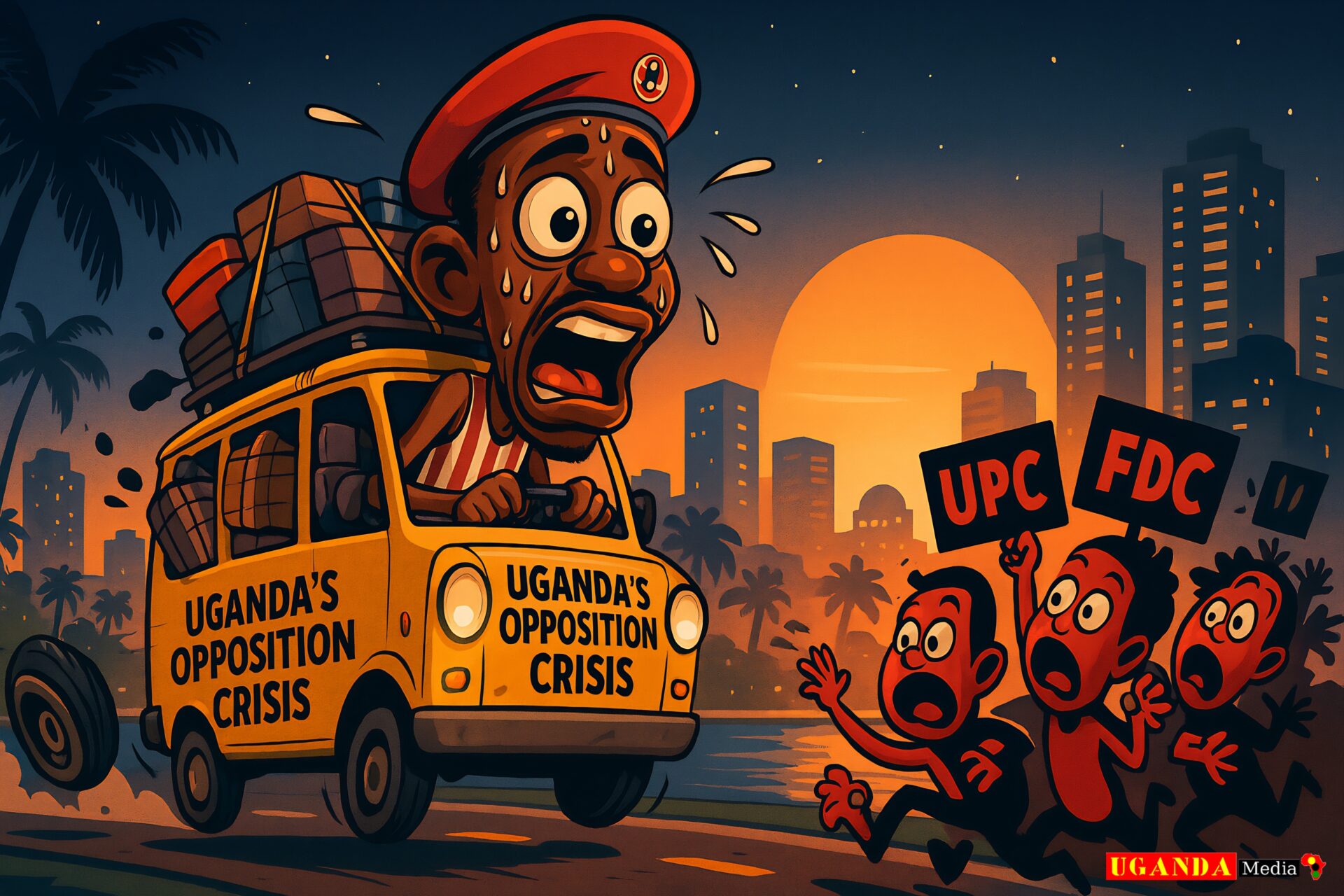 This is a call to move beyond the tired cycle of disappointment. The real, lasting change will come not when we find the perfect saviour, but when we finally stop looking for one altogether. It will arrive when we recognise that our power does not reside in a parliament building in Kampala, but in our own hands, our own communities, and our own capacity to organise. It begins when we start building our own power together, creating structures of such profound transparency and grassroots accountability that they leave no dark corners for corruption to hide and no room for a price tag to ever be attached to hope.
This is a call to move beyond the tired cycle of disappointment. The real, lasting change will come not when we find the perfect saviour, but when we finally stop looking for one altogether. It will arrive when we recognise that our power does not reside in a parliament building in Kampala, but in our own hands, our own communities, and our own capacity to organise. It begins when we start building our own power together, creating structures of such profound transparency and grassroots accountability that they leave no dark corners for corruption to hide and no room for a price tag to ever be attached to hope.
The task ahead is to become the architects of our own destiny, to build a society where power is so widely distributed that it can never again be stolen, bought, or abused. It is to ensure that the river of power flows from the many small streams of the people, forever making the stagnant, centralised swamp of the old politics obsolete. Our hope, and our future, lies not in a leader on a podium, but in the unbreakable bundle we form together.
- The NUP Corruption Allegations: A Sign of a Deeper Political Failure? - 8 September 2025
- Ugandan Politics Exposed: The Illusion of Choice and Managed Opposition - 6 September 2025
- Bobi Wine & NUP Corruption: The Inside Story of Uganda’s Opposition Crisis - 5 September 2025

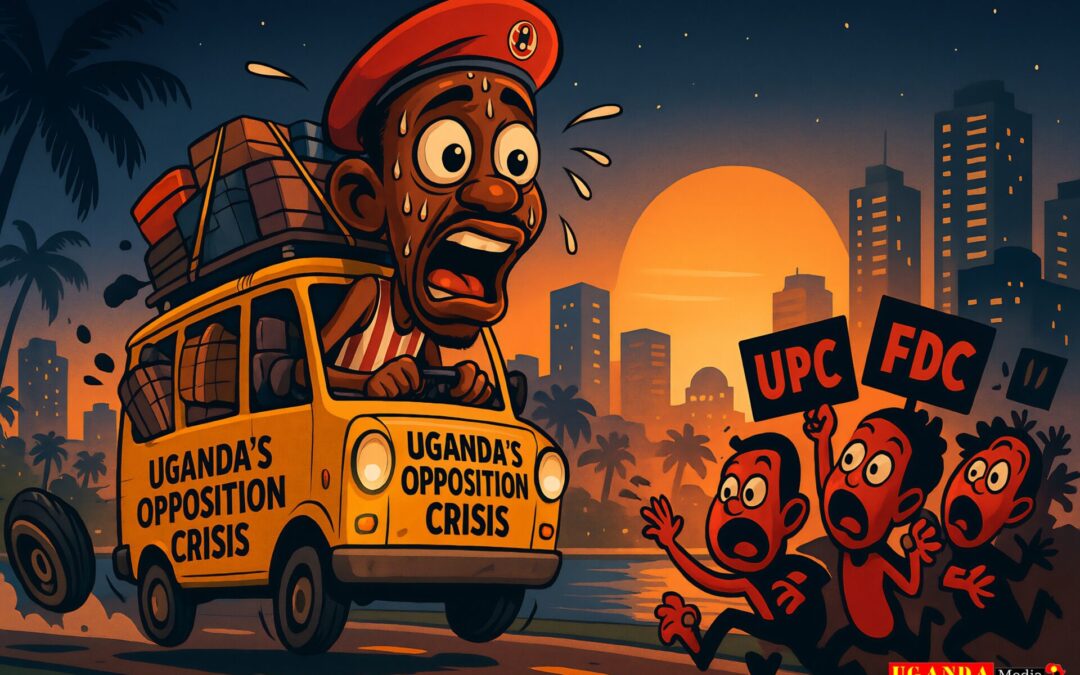
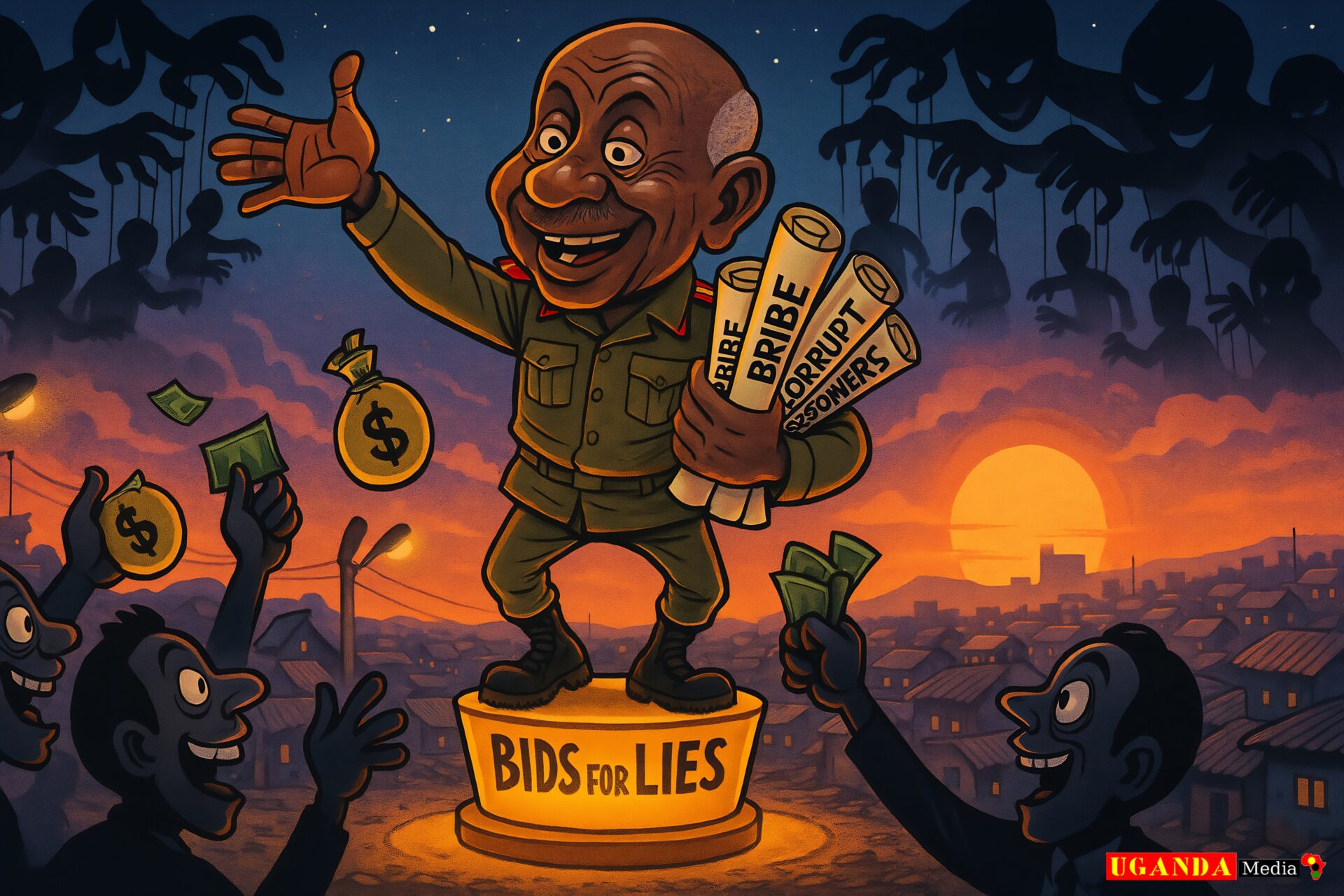 From a perspective that values radical freedom and mutual aid over hierarchical power, this betrayal was almost inevitable. Why? Because the model itself is flawed. Any structure that concentrates power—the ability to grant or deny candidacy, to control resources, to be the gatekeeper of “the party”—in the hands of a central committee or a few individuals, inherently contains the seeds of this corruption. Power, as we have seen throughout history, seeks to preserve and enrich itself. When you replace one centralised structure with another, you often merely replace the faces at the top, not the corrupting nature of the throne itself.
From a perspective that values radical freedom and mutual aid over hierarchical power, this betrayal was almost inevitable. Why? Because the model itself is flawed. Any structure that concentrates power—the ability to grant or deny candidacy, to control resources, to be the gatekeeper of “the party”—in the hands of a central committee or a few individuals, inherently contains the seeds of this corruption. Power, as we have seen throughout history, seeks to preserve and enrich itself. When you replace one centralised structure with another, you often merely replace the faces at the top, not the corrupting nature of the throne itself.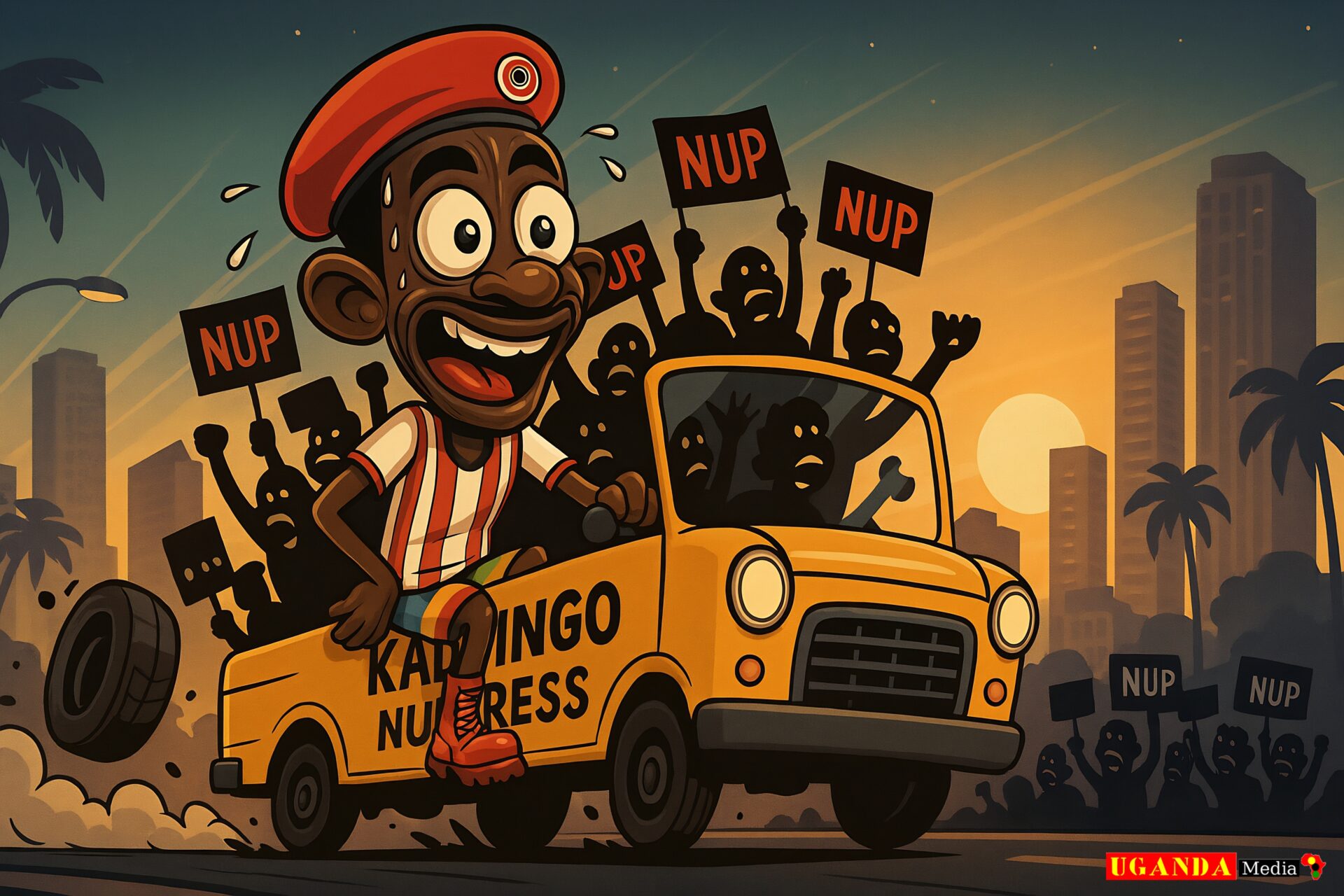 True merit is not a score given by a committee. It is a quality recognised daily by one’s neighbours, peers, and comrades. It is earned through consistent action, integrity, and service—not purchased in a shadowy deal. A system that truly valued merit would dissolve the gatekeeping committees altogether and trust the people to know their own interests best. It would understand that a log, however long it floats, can never truly lead the river.
True merit is not a score given by a committee. It is a quality recognised daily by one’s neighbours, peers, and comrades. It is earned through consistent action, integrity, and service—not purchased in a shadowy deal. A system that truly valued merit would dissolve the gatekeeping committees altogether and trust the people to know their own interests best. It would understand that a log, however long it floats, can never truly lead the river.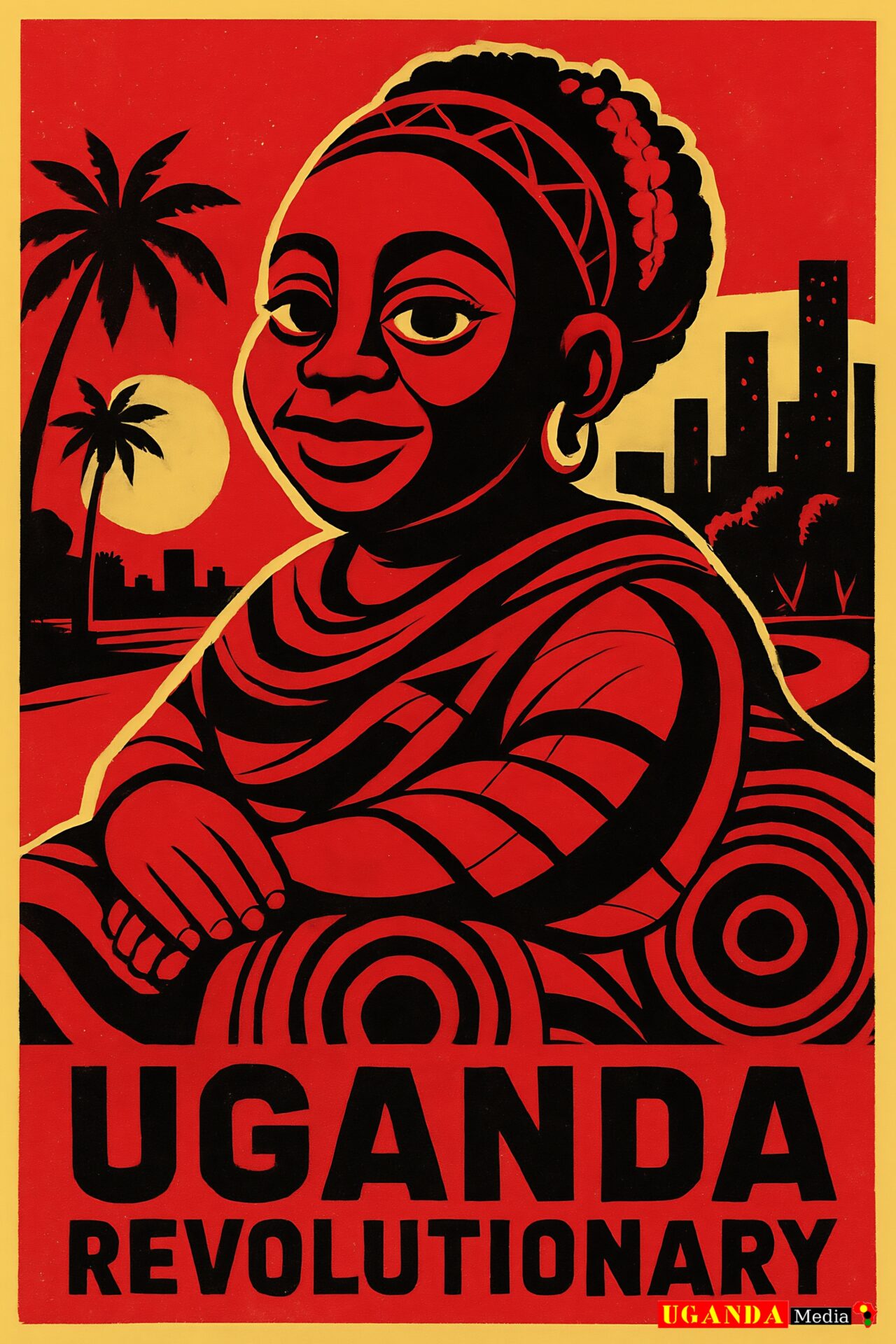 This creates a devastating betrayal. It tells ordinary Ugandans that their trust, their relationships, and their collective voice are worthless in the face of a banknote. It reinforces a vicious cycle where only the wealthy or the indebted can access the political arena, ensuring that the system will never truly serve the interests of the poor. The party begins to resemble the very system it claims to oppose—a patronage network where loyalty is bought and sold, not earned through shared struggle and principle.
This creates a devastating betrayal. It tells ordinary Ugandans that their trust, their relationships, and their collective voice are worthless in the face of a banknote. It reinforces a vicious cycle where only the wealthy or the indebted can access the political arena, ensuring that the system will never truly serve the interests of the poor. The party begins to resemble the very system it claims to oppose—a patronage network where loyalty is bought and sold, not earned through shared struggle and principle.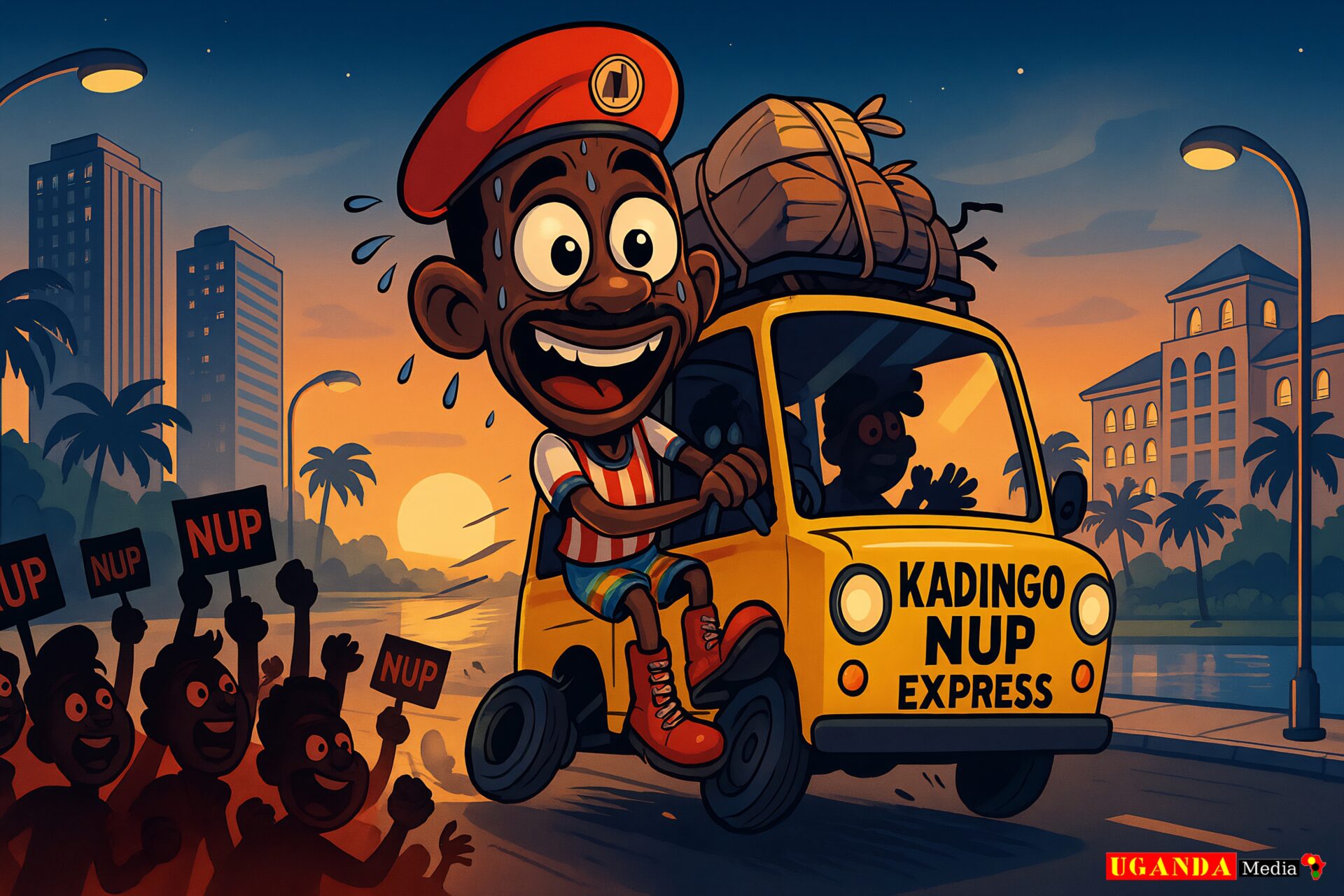 A movement without a vision is like a body without a spirit—it may move, but it has no purpose beyond its own hunger. We must refuse to sell our granary for a temporary meal. We must insist that the true goal is not to simply win the game, but to change the rules entirely; to build a politics where the power to define the future rests not with a party machine, but in the hands of the people, organised freely on their own terms.
A movement without a vision is like a body without a spirit—it may move, but it has no purpose beyond its own hunger. We must refuse to sell our granary for a temporary meal. We must insist that the true goal is not to simply win the game, but to change the rules entirely; to build a politics where the power to define the future rests not with a party machine, but in the hands of the people, organised freely on their own terms.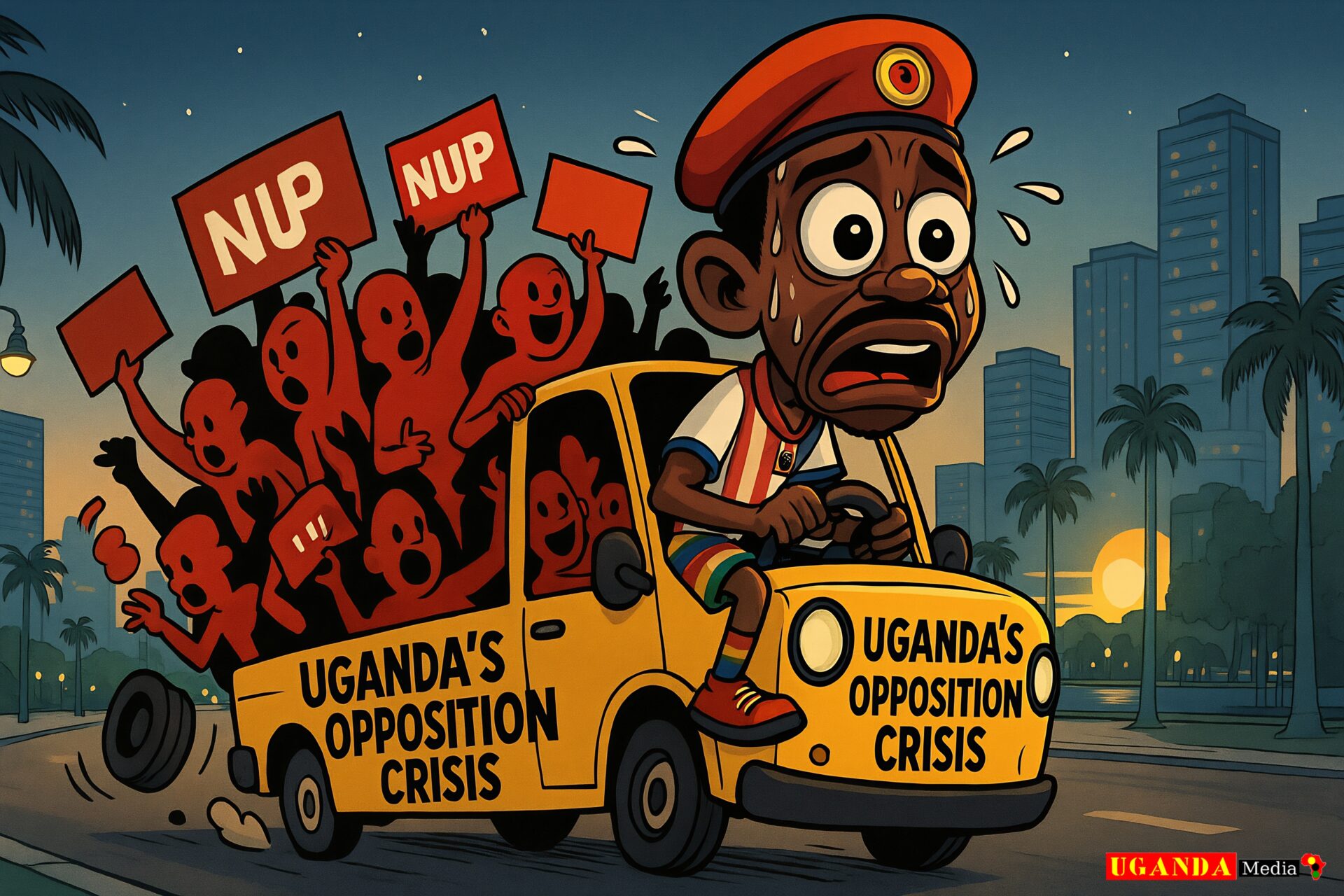 This verticality is the opposite of strength. It is a profound fragility. It means the movement’s health is dependent on the infallibility of one human being—a impossible standard. It discourages critical thought and internal debate, as loyalty to the leader is often mistaken for loyalty to the cause. It creates a culture where sycophants rise and independent thinkers are sidelined, for they are considered a threat to the centralised unity of the figurehead.
This verticality is the opposite of strength. It is a profound fragility. It means the movement’s health is dependent on the infallibility of one human being—a impossible standard. It discourages critical thought and internal debate, as loyalty to the leader is often mistaken for loyalty to the cause. It creates a culture where sycophants rise and independent thinkers are sidelined, for they are considered a threat to the centralised unity of the figurehead.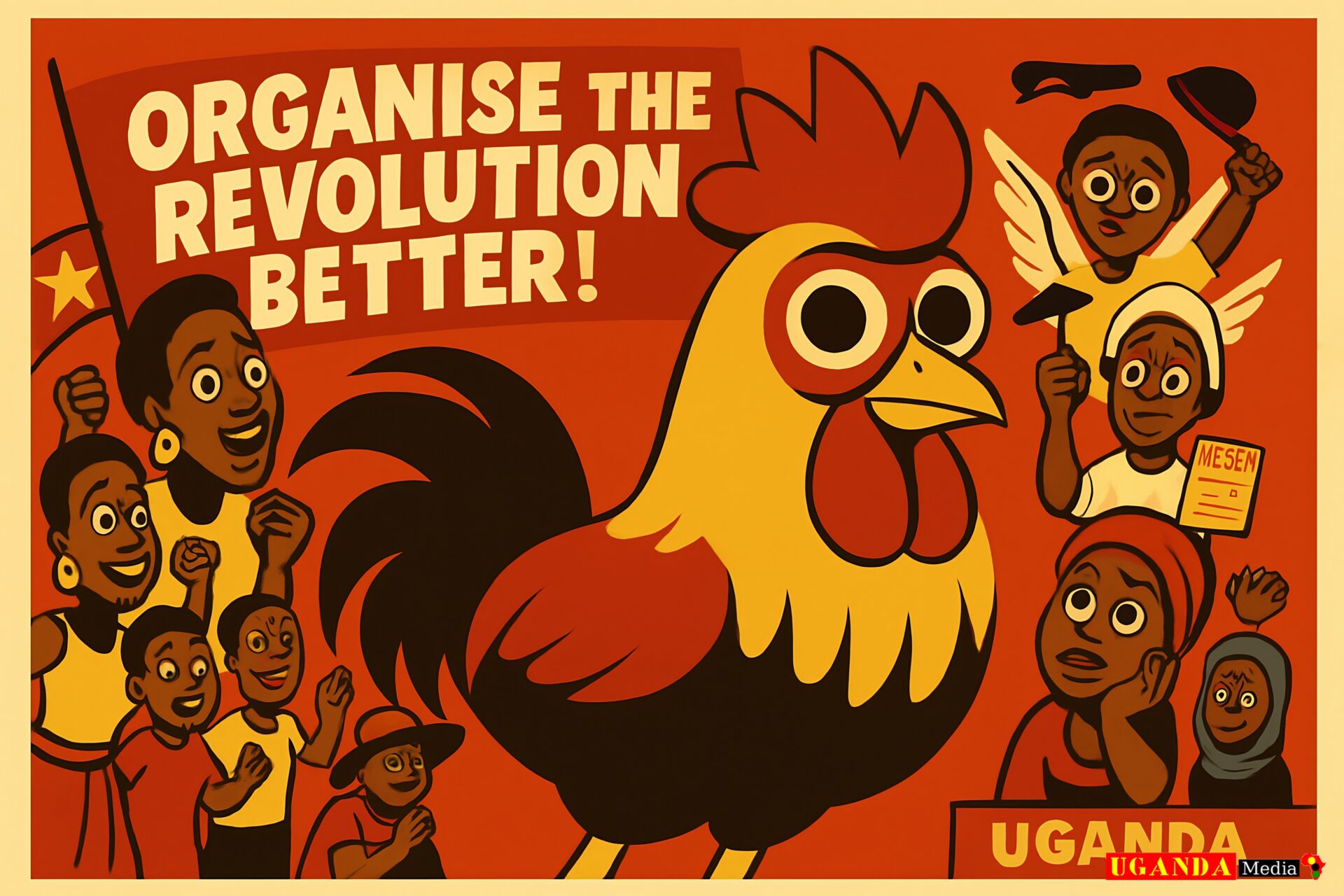 From a perspective that believes community and solidarity are the bedrock of society, this commercialisation is a form of deep spiritual corruption. It reduces human dignity, collective aspiration, and the dream of self-determination to a simple line item in a ledger. It tells the youth of Uganda that their future has a price tag, and that if they cannot pay it, they have no place at the table. It makes a mockery of the sacrifices made by those who fought for political freedom, turning their struggle into a commodity to be traded.
From a perspective that believes community and solidarity are the bedrock of society, this commercialisation is a form of deep spiritual corruption. It reduces human dignity, collective aspiration, and the dream of self-determination to a simple line item in a ledger. It tells the youth of Uganda that their future has a price tag, and that if they cannot pay it, they have no place at the table. It makes a mockery of the sacrifices made by those who fought for political freedom, turning their struggle into a commodity to be traded.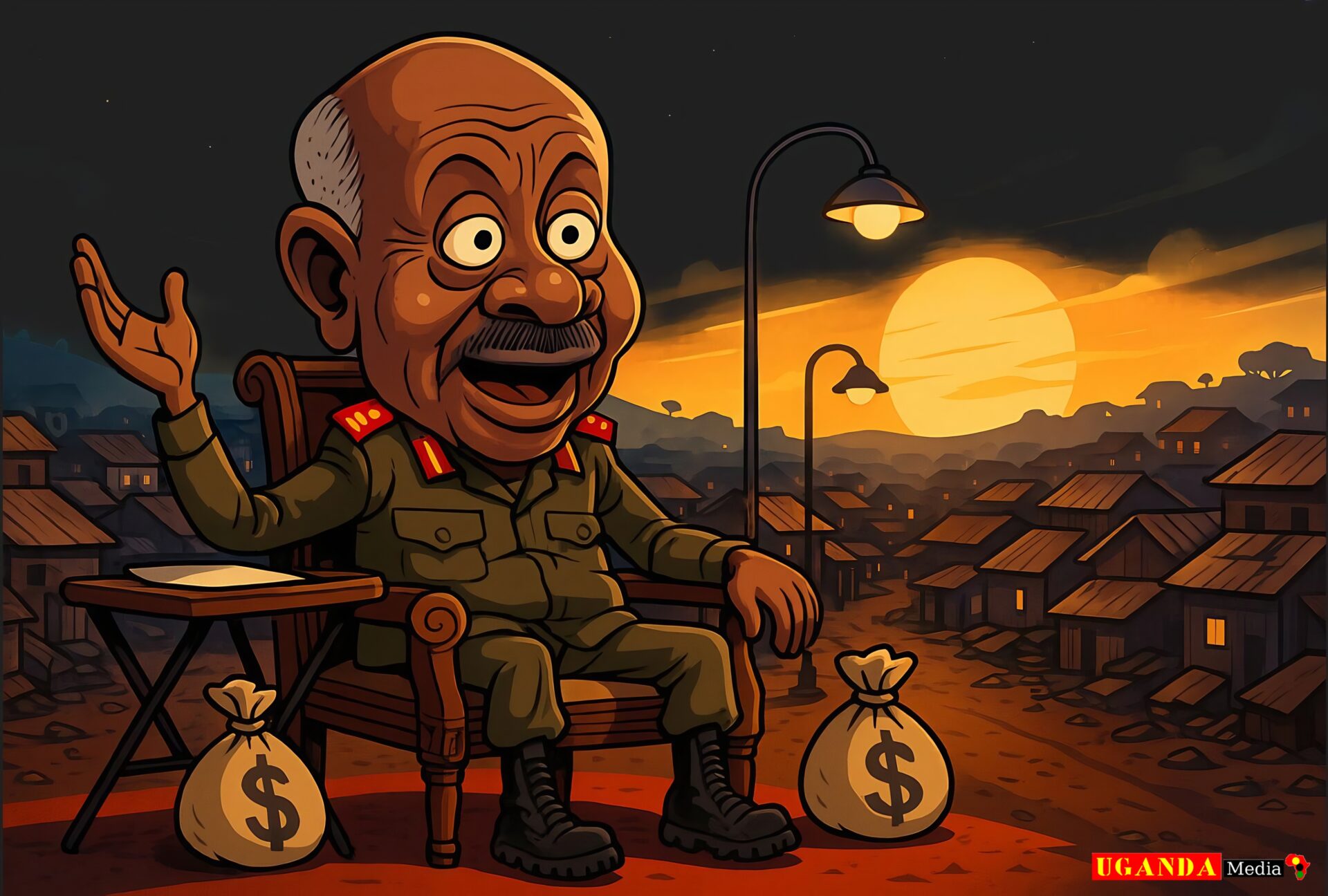 This engineered illusion has a devastating psychological and political consequence: it fosters widespread apathy and cynicism. When people feel that their vote cannot possibly alter the fundamental structures of power or improve their material conditions, they disengage. They conclude that “all politicians are the same,” and that political participation is a futile waste of energy. This mass disillusionment is the greatest weapon of any entrenched power structure. Apathy is the silence that allows corruption to thrive unchallenged. Cynicism is the poison that kills the hope required to build something new.
This engineered illusion has a devastating psychological and political consequence: it fosters widespread apathy and cynicism. When people feel that their vote cannot possibly alter the fundamental structures of power or improve their material conditions, they disengage. They conclude that “all politicians are the same,” and that political participation is a futile waste of energy. This mass disillusionment is the greatest weapon of any entrenched power structure. Apathy is the silence that allows corruption to thrive unchallenged. Cynicism is the poison that kills the hope required to build something new.






